How to Choose the Best Blender – a Chef’s Guide to Types, Trusted Brands, and the Models I Actually Recommend
After years of blending smoothies, soups, and frozen drinks, I’m breaking down prices and performance to help you find your perfect blender match
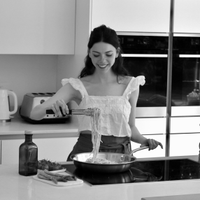
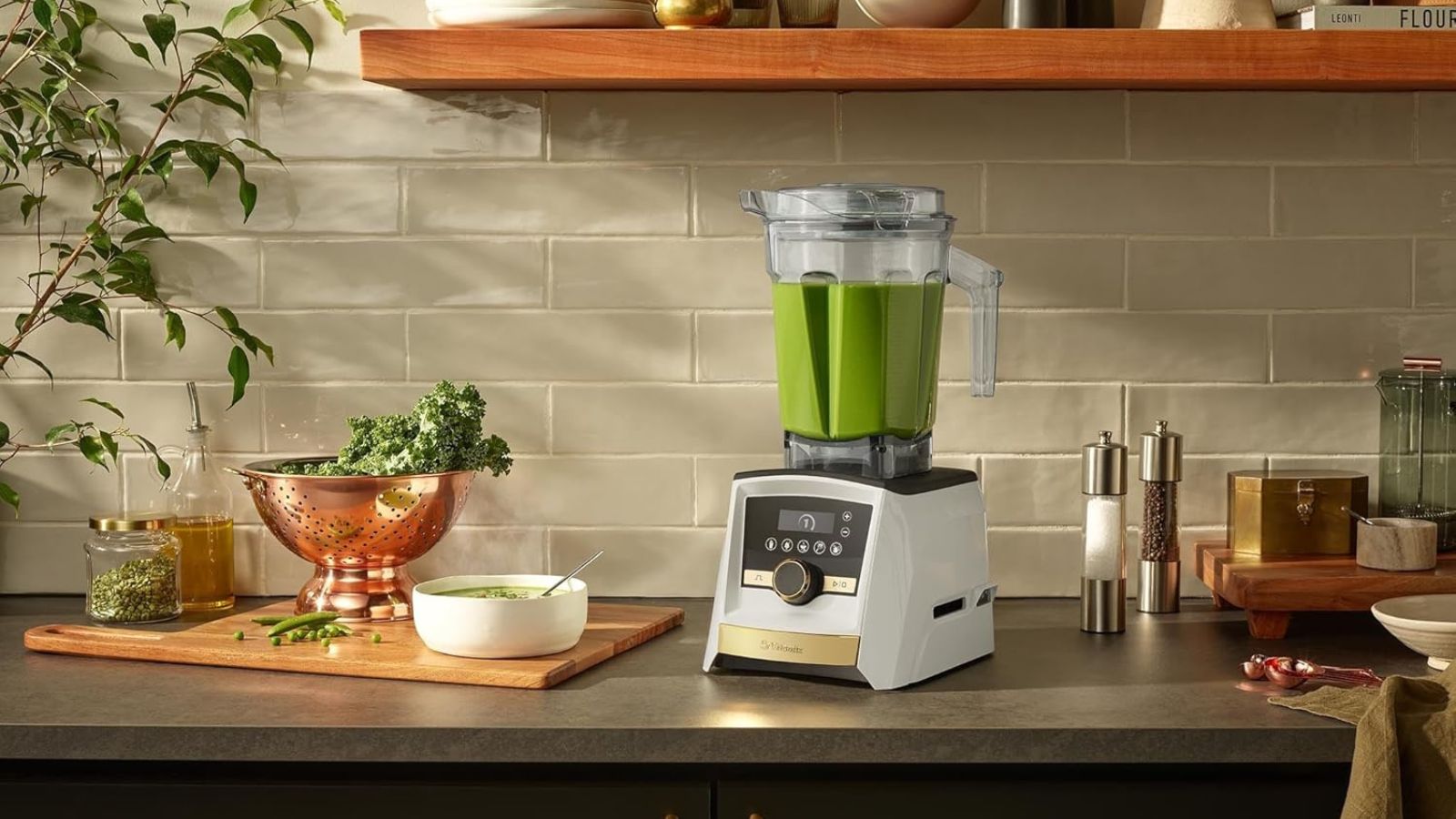
As a trained chef, I think a good blender is one of the most underrated workhorses in the kitchen. From weekday smoothies and nourishing soups to Friday-night margaritas and salsa dips, the best blender will open up a whole new world of recipes –making it easier to eat and drink well at home.
The only snag is that there are lots of different shapes and sizes to choose from, which can make it hard to find the best blender for you. In this guide, I’ll explain all the different types, including countertop blenders, immersion sticks, and the best personal blenders. I’ll also talk through the leading brands, like Vitamix, NutriBullet, Ninja, KitchenAid, and Braun. I've tested all the top names, so I can explain how each one stacks up in terms of power, reliability, and suitability for your lifestyle.
And since pricing is everything, I’ll also flag the major sales periods (think Black Friday, summer Prime Days, and January clearances) so you can plan your purchase wisely. By the end, you’ll have a clear picture of which blender is right for your needs – whether you’re experimenting with nut butters, blending baby food, or simply perfecting your morning smoothie ritual.
The Quick List: tried-and-tested blenders
With the help of my team of product testers, we've trialled the leading blenders from all the major brands. These are the best blenders on the market. If you already know what you need and you're looking for a quick win, start here.
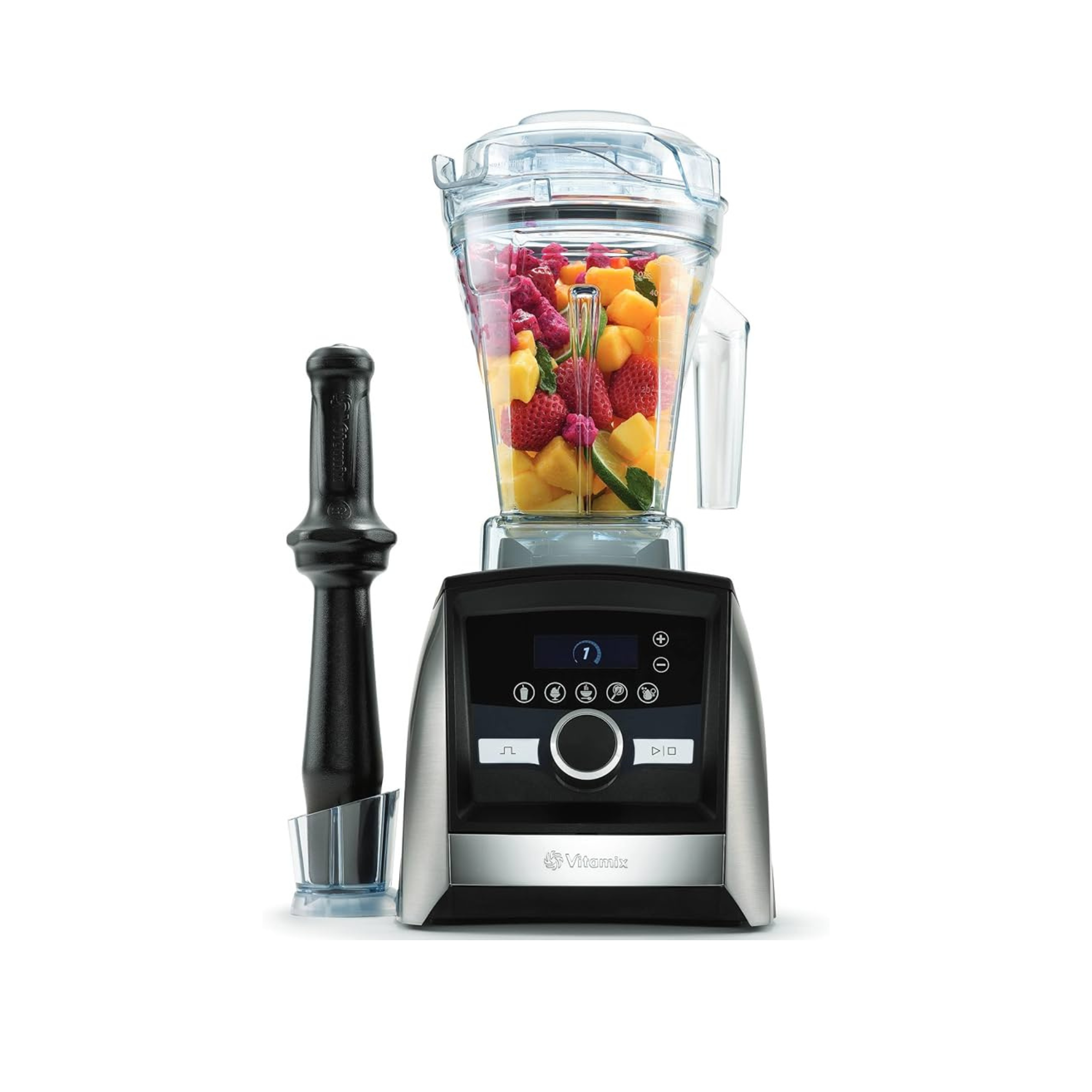
Put simply, this is the best blender money can buy. It makes perfect smoothies, hot soup, crushed ice, and nut butters, excelling in all our tests. It's beautiful and universally beloved. It comes with a hefty price tag, but we think it's worth every penny.
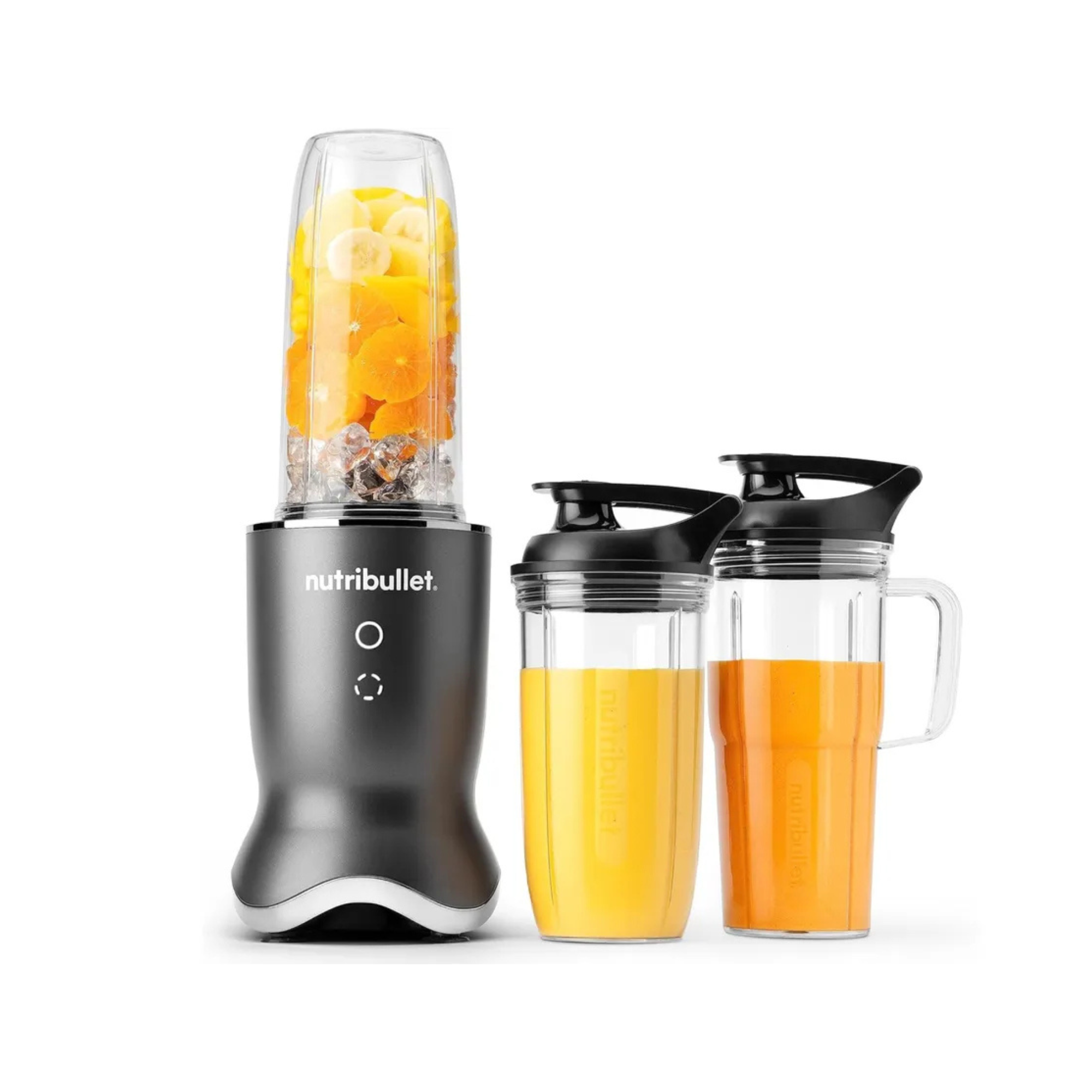
For simple morning smoothies, look no further. This Nutribullet Ultra crushes frozen bananas, kale, and seeds into silky-smooth drinks in seconds. It can only blend one serving at a time, but it comes with extra cups and travel lids.
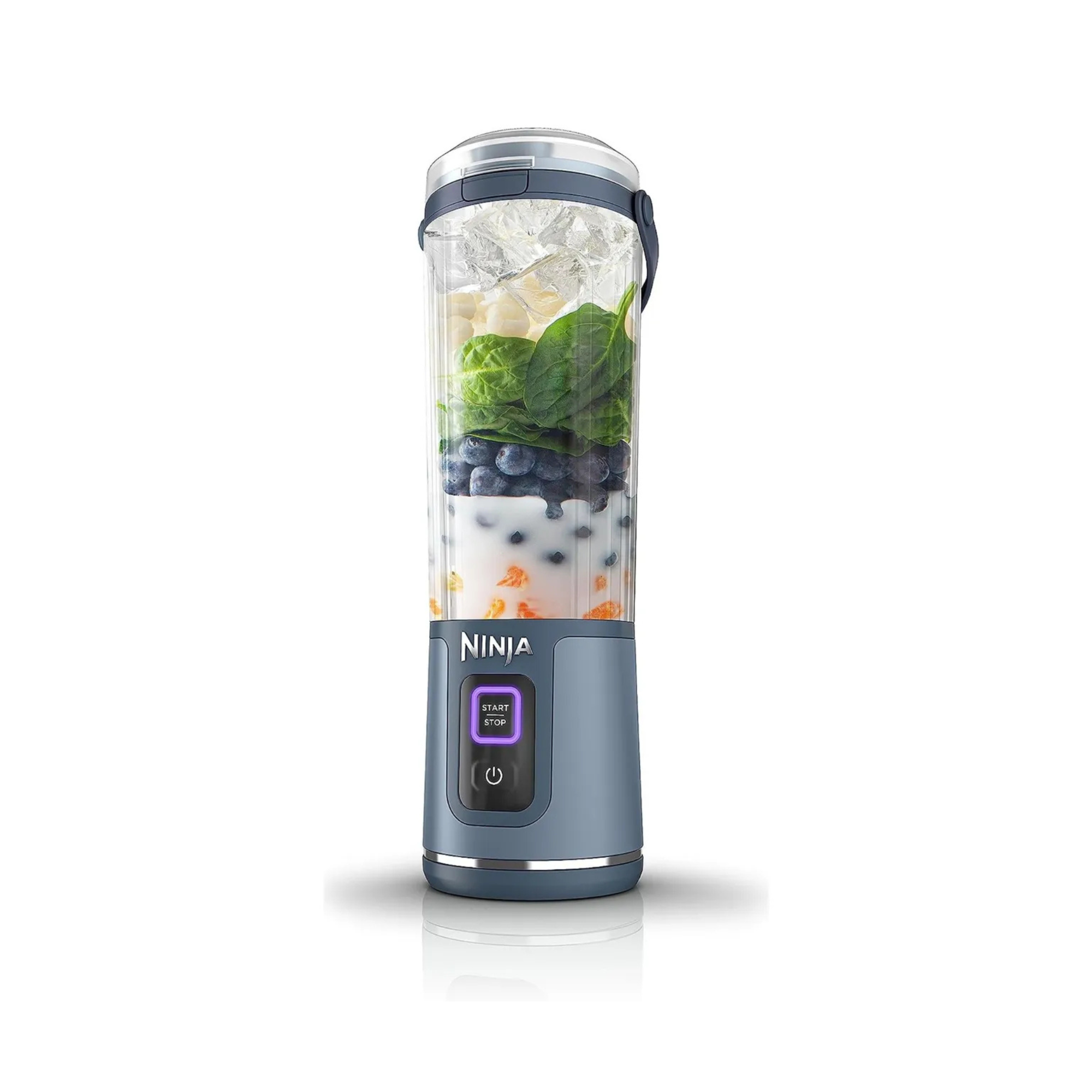
If you want a little blender for mixing protein shakes or smoothies on the go, this is the best option. It might be small and lightweight, but it's mighty for its size. We love the range of colors, which add a pop of personality.
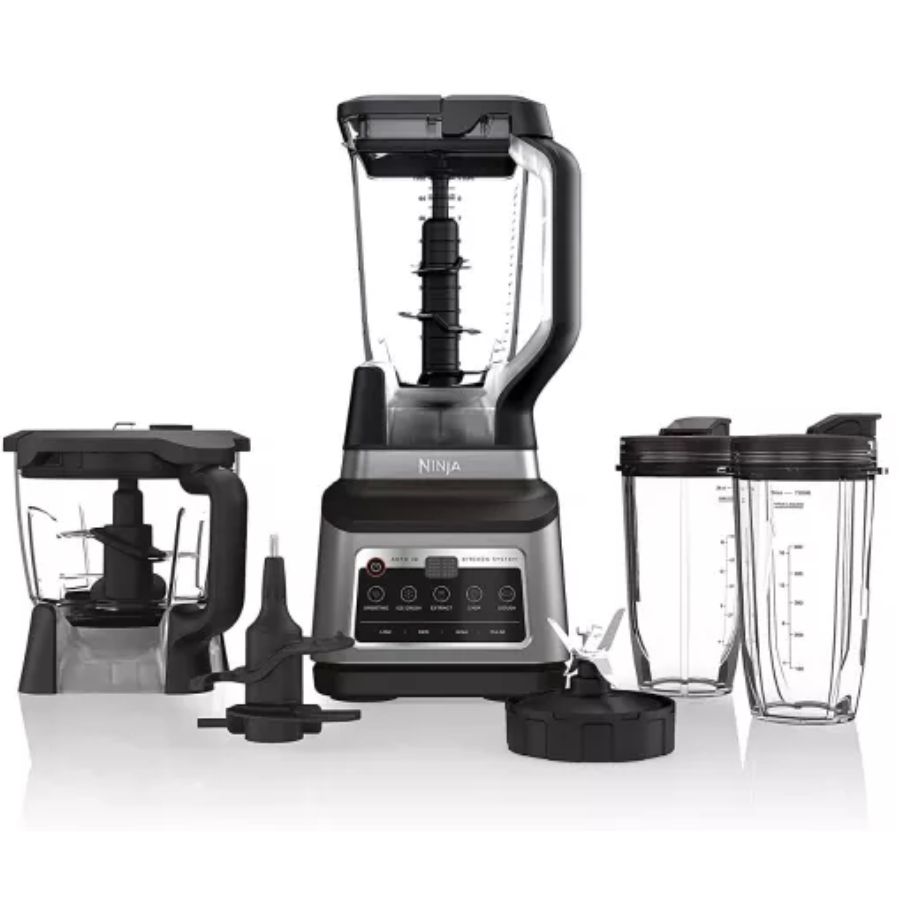
If you want a machine that can make a smoothie and also help with meal prep, try a blender-food-processor combo. This mighty Ninja can shred cheese, chop carrots, dice onions, and more. There are a lot of accessories, so clear some cupboard space first.
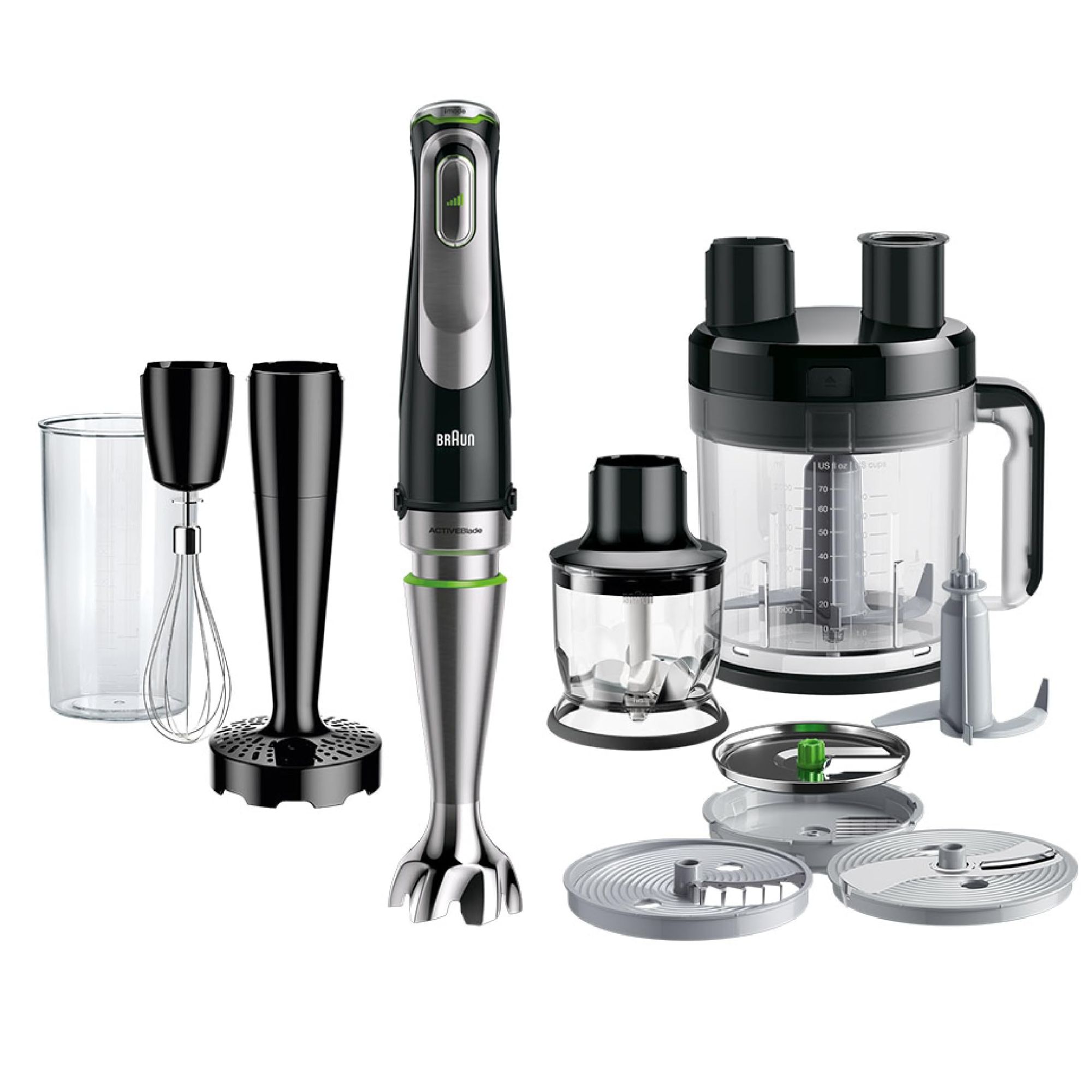
We've tested boatloads of hand blenders (also known as immersion or stick blenders), and the sturdy Braun remains our top pick. It can blend velvety soups on the stove with precision. It also features attachments for whisking, mashing, and dicing.
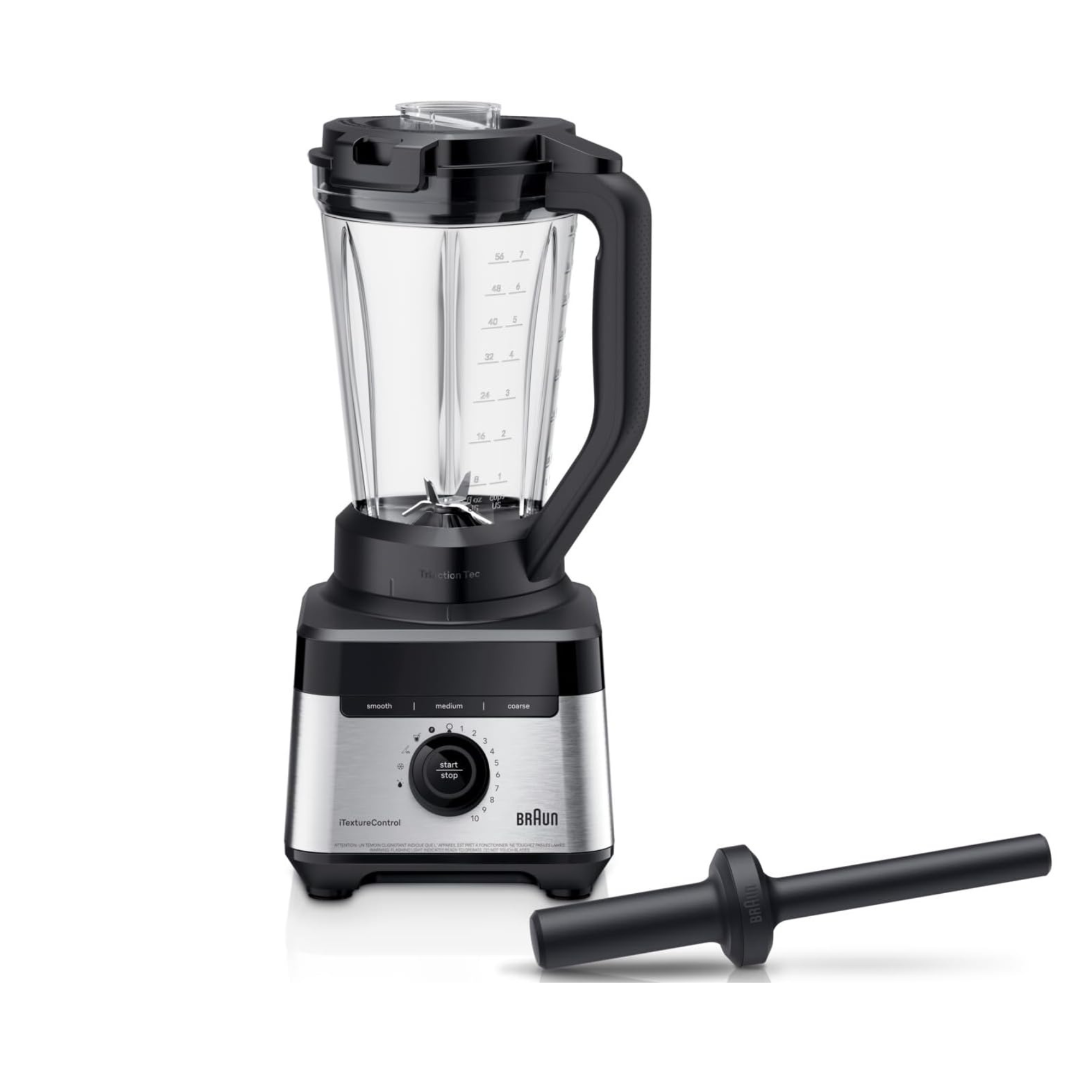
When we tested this $200 Braun against a luxury Vitamix, the results were nearly identical. Miraculously, the Braun was actually faster at blending ice and making soup. It's excellent value, just very noisy – you may want to buy some earplugs, too.
Types of blenders: explained by an expert
Below, I lay out the pros and cons of each type of blender, and single out our most highly-rated buys.
Countertop blenders
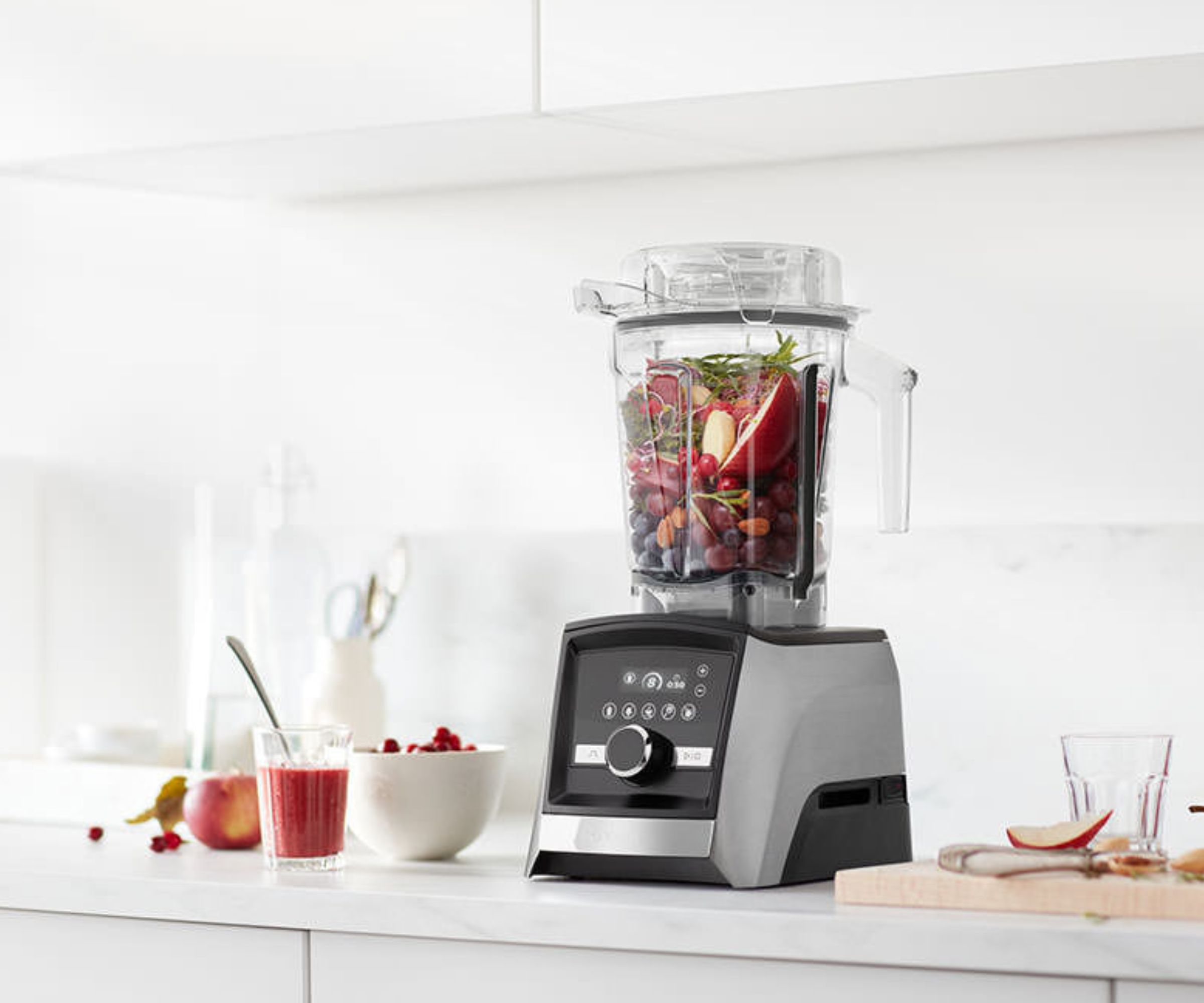
Pros: If you love entertaining and cooking new recipes, a countertop blender is your match. They are pretty powerful and usually come with around 2 liters of capacity. That's perfect for pouring big-batch smoothies, soup for the whole family, or frozen cocktails for a crowd.
The best countertop blenders come with pre-set programs that take the guesswork out of blending, so you can blitz, purée, or crush ice at the touch of a button. If you splash out on a more luxurious, powerful machine like a Vitamix Ascent, you can get clever extras too, like hot soup in minutes and food-processing attachments.
Cons: If you’re only blending occasionally, a full-size countertop blender might feel like overkill. They are bulky and not ideal for little kitchens. If you're just blending for yourself, you'll find that cleaning a giant jug is too much hassle. They can also be noisy (just read our Braun Triforce review). Less powerful, portable or hand blenders will be much quieter – and more affordable.

Vitamix makes the best countertop blenders out there. Once you've had a taste of the power, speed, and versatility of a model like the A3500, it's difficult to go back to any other brand. The caveat is that it is very pricey, but the reliable motor and materials can last up to 10 years.
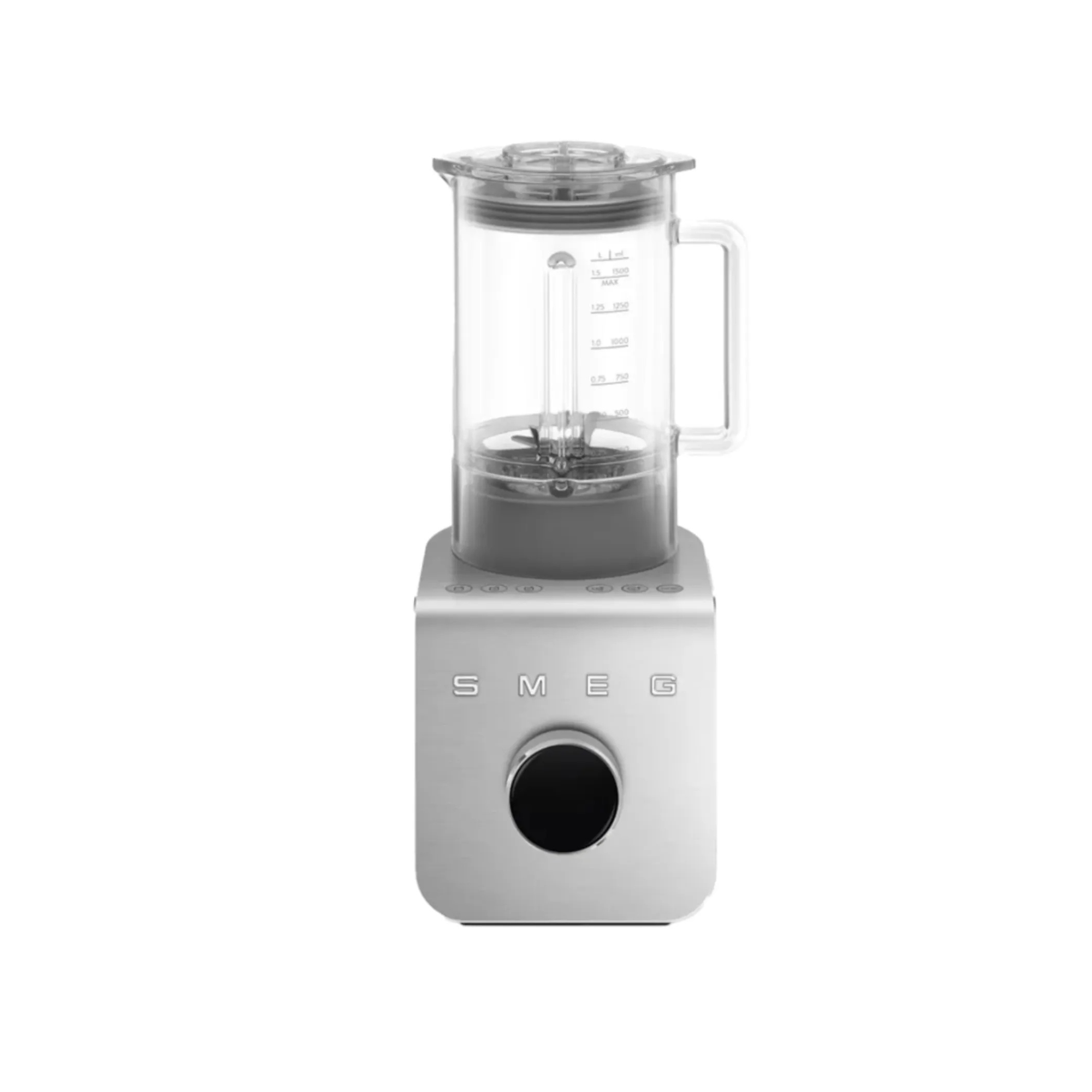
The space-age style of Smeg's blender makes this one of the sleekest, most premium models on the market. It's meticulously thorough, and the vacuum pump is useful for keeping blends fresher for longer. If you care deeply about aesthetics and want to be able to batch-blend, the Smeg is a smart pick.

When we tested this $200 Braun against luxury Vitamix models that cost up to $700, the results were nearly identical. Miraculously, the Braun was actually faster at blending ice and making soup. It's excellent value, but very noisy.
Personal blenders
Pros: If you're short on space, or blending just for yourself and another person, the best personal blenders will suit you well. They usually come with one or two blending cups that have travel lids, so you can whizz your smoothie and head straight out the door.
Bullet blenders are a common type of personal blender, made famous by the NutriBullet brand. All models will be compact, simple to use (often just twist or pulse), and best suited to smoothies, protein shakes, and other quick blends.
You can also get portable blenders which charge up with a micro USB or USB-C, then you can blend on the commute, at the office, or after a workout. Models by Ninja and BlendJet are very light and compact, easily fitting into a bag or cupholder. Another huge pro is that they tend to be quiet blenders.
Cons: Personal blenders aren’t built for big jobs. There are some powerful options out there that can tackle chunky dips and ice cubes, but only if you invest in a high-end model (like the Nutribullet Ultra below). If you are keen to experiment with tricky recipes or you want to feed a crowd, a personal blender will be limiting.

This is the best personal blender by far. The Ultra can whip frozen bananas, kale, and seeds into silky-smooth drinks in seconds – and it can even crush ice and blend hummus. It's modern and powerful, and not too expensive compared to competitors.
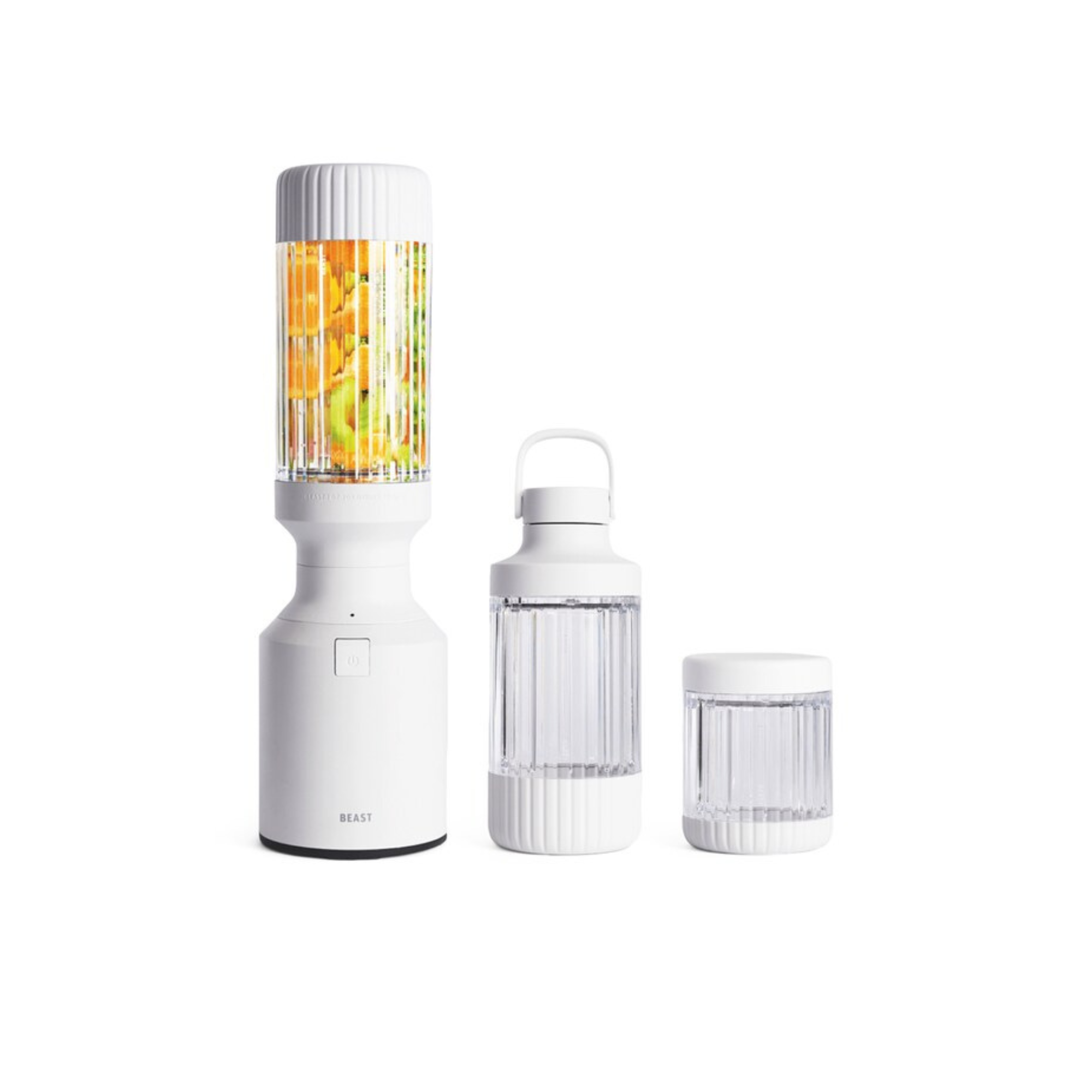
The Beast Mighty 850 Plus comes with small, medium, and large cups with straws and interchangeable lids, which are perfect for on-the-go use. I use mine pretty much every day to make ultra-creamy smoothies and dips. However, it struggles on ice. The Nutribullet Ultra is more powerful and versatile.
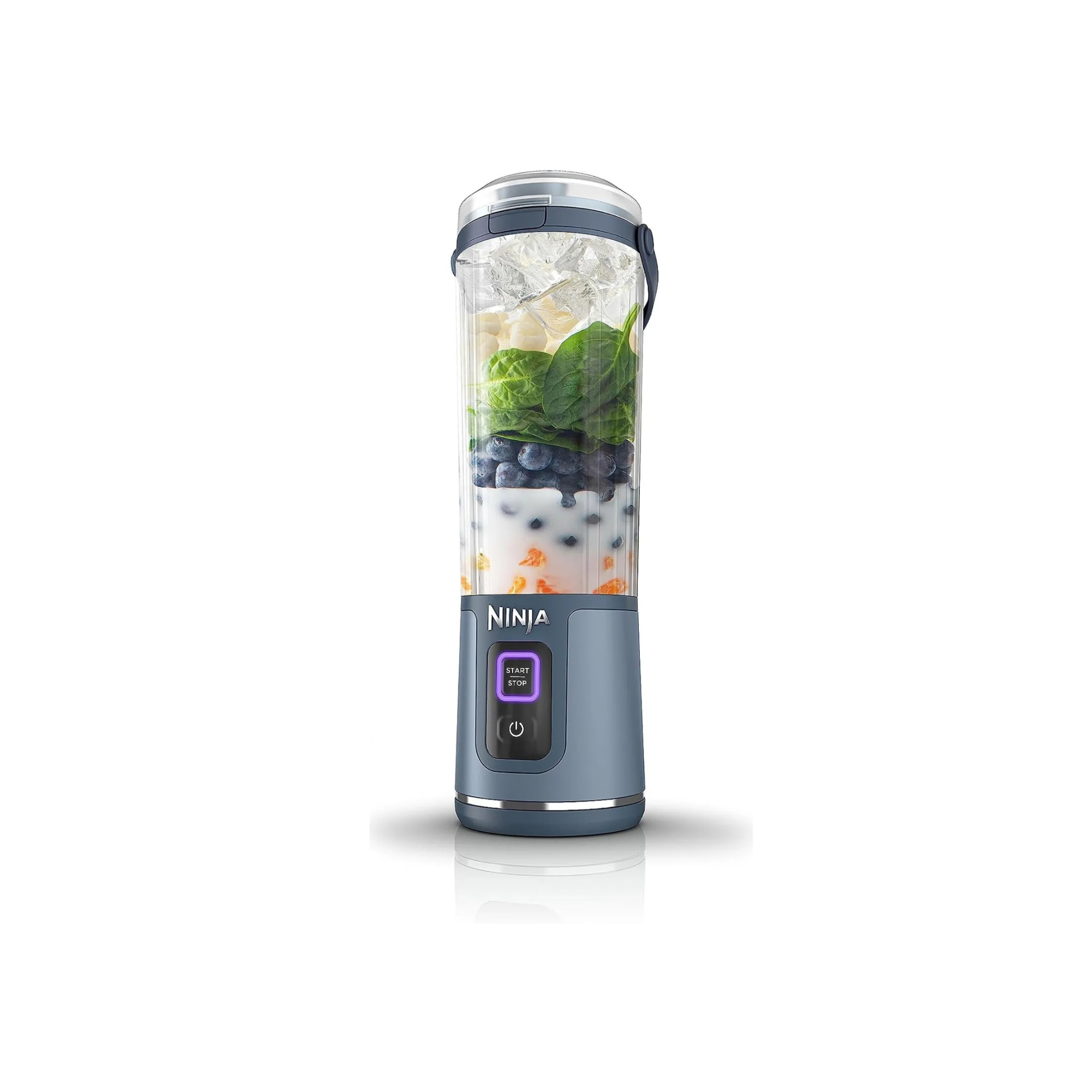
Ninja makes the best portable blender out there. We think the Blast is lightweight, aesthetic, and has good capacity (we liked the liquid measures on the pitcher). It is effective on chopped frozen fruit and small ice cubes, but struggles a little with seeds. Ninja recently released the Blast Max; a serious upgrade in both sizes.
Immersion blenders
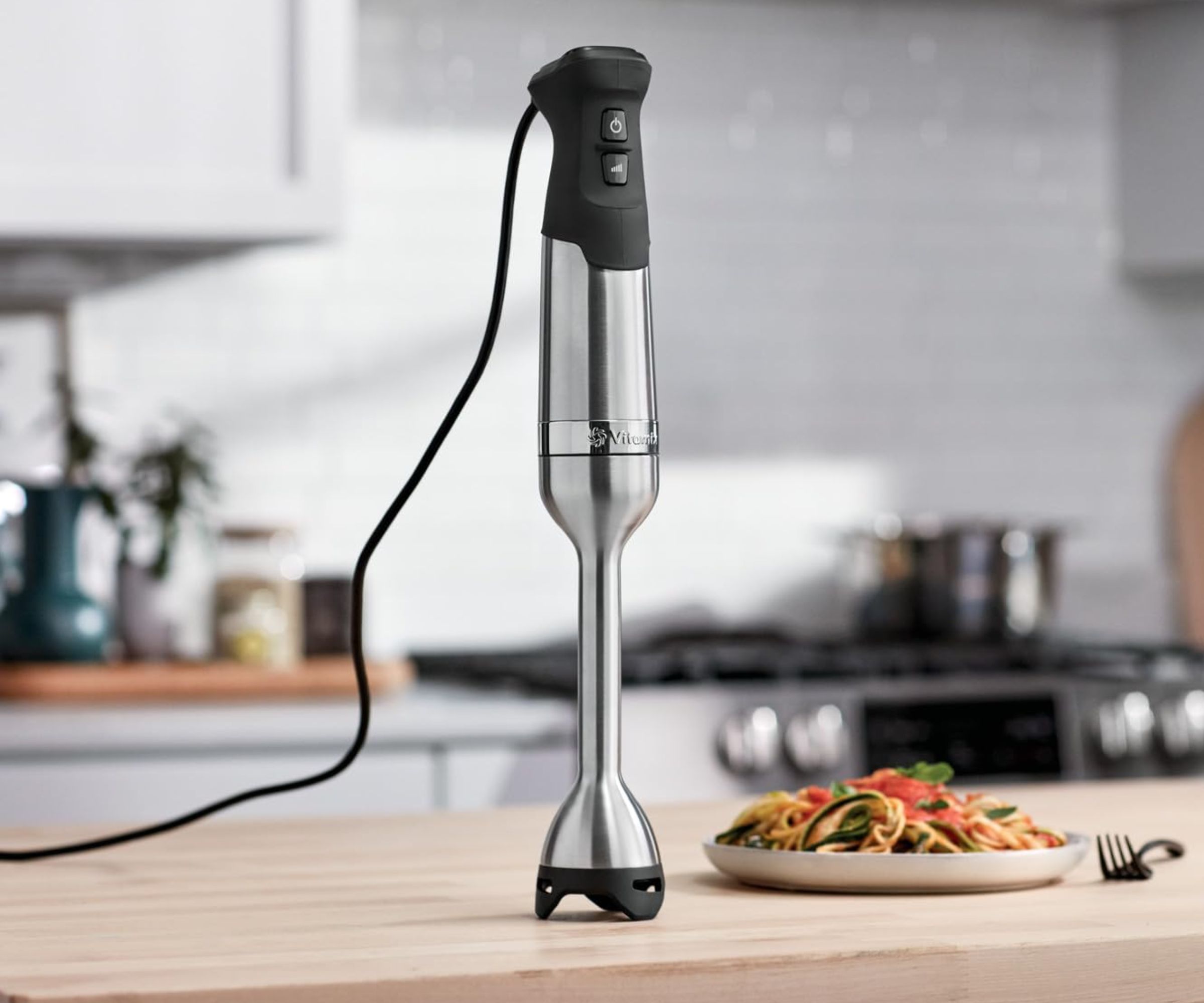
Pros: If you want a blender for making homemade soups, salad dressings, baby food, pesto, or tomato sauce, look no further than the immersion blender (also known as a stick blender or hand blender)
Their small size makes them great for small kitchens with little storage space for larger appliances. They often come with useful attachments that slot onto the blending motor, so you can also whisk cream or mash potatoes as well. Brands like KitchenAid Go make cordless options, so you can blend anywhere in the kitchen without being close to an outlet. They also tend to be contenders for the best quiet blenders.
Cons: Immersion blenders can manage smoothies if you put the ingredients into a separate pitcher (often provided in the box), but it can get a little messy. Also, blending by hand can get tiring. It's a little easier to chunk ingredients into a jug and let blades and a vortex system do the work for you. Also, most standard stick blenders will not crush ice.
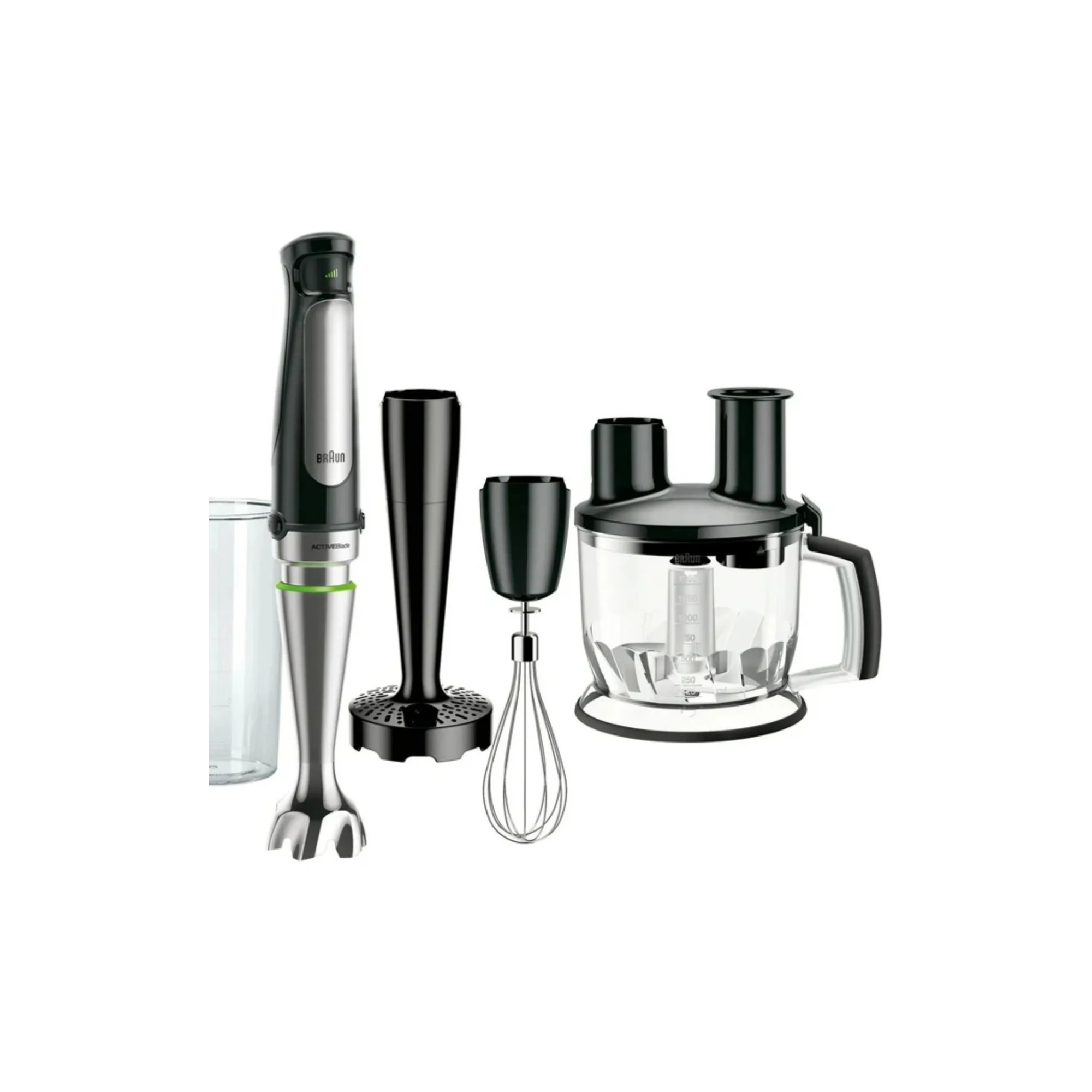
An unsurprisingly excellent option, Braun's blender is good value for money for the versatility and power it brings to the kitchen.
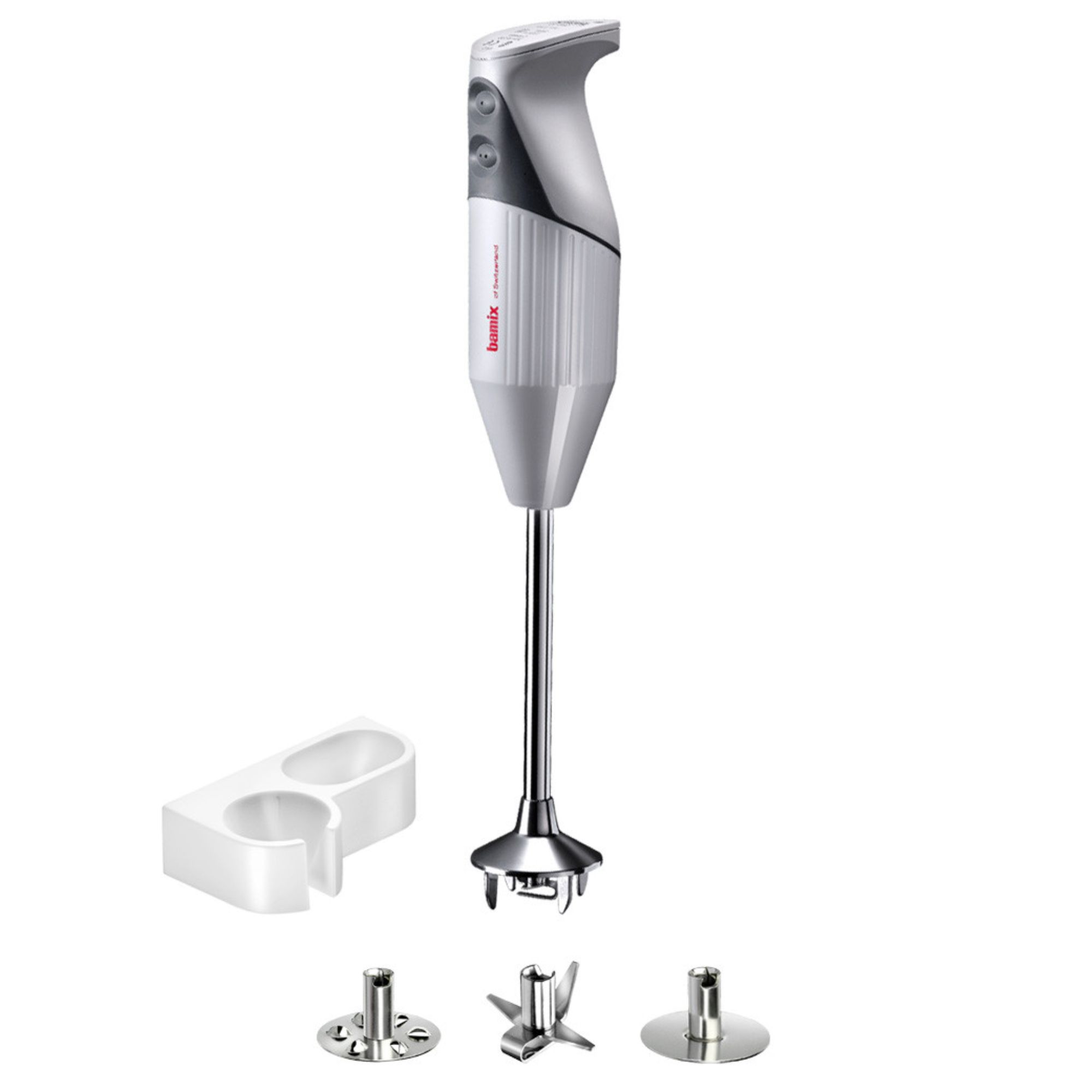
Bamix make incredible immersion blenders that are often used by professionals, and this model maintains their excellent reputation. It's super sharp and speedy.
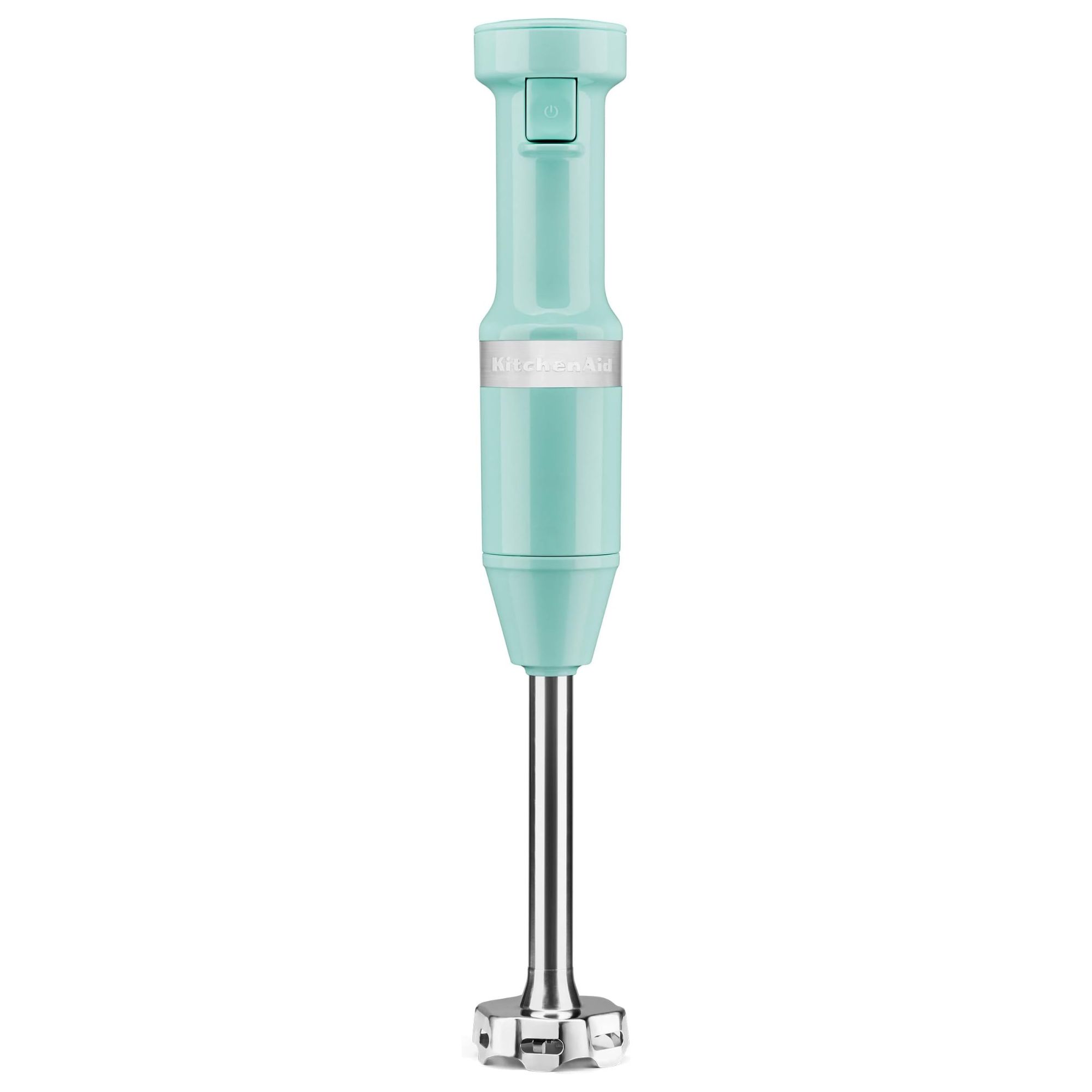
If you want variable speeds without the cord, this is a durable, reliable option from the KitchenAid brand. It's a basic, older design, but beloved by many bakers and pro cooks.
Multi-functional blenders
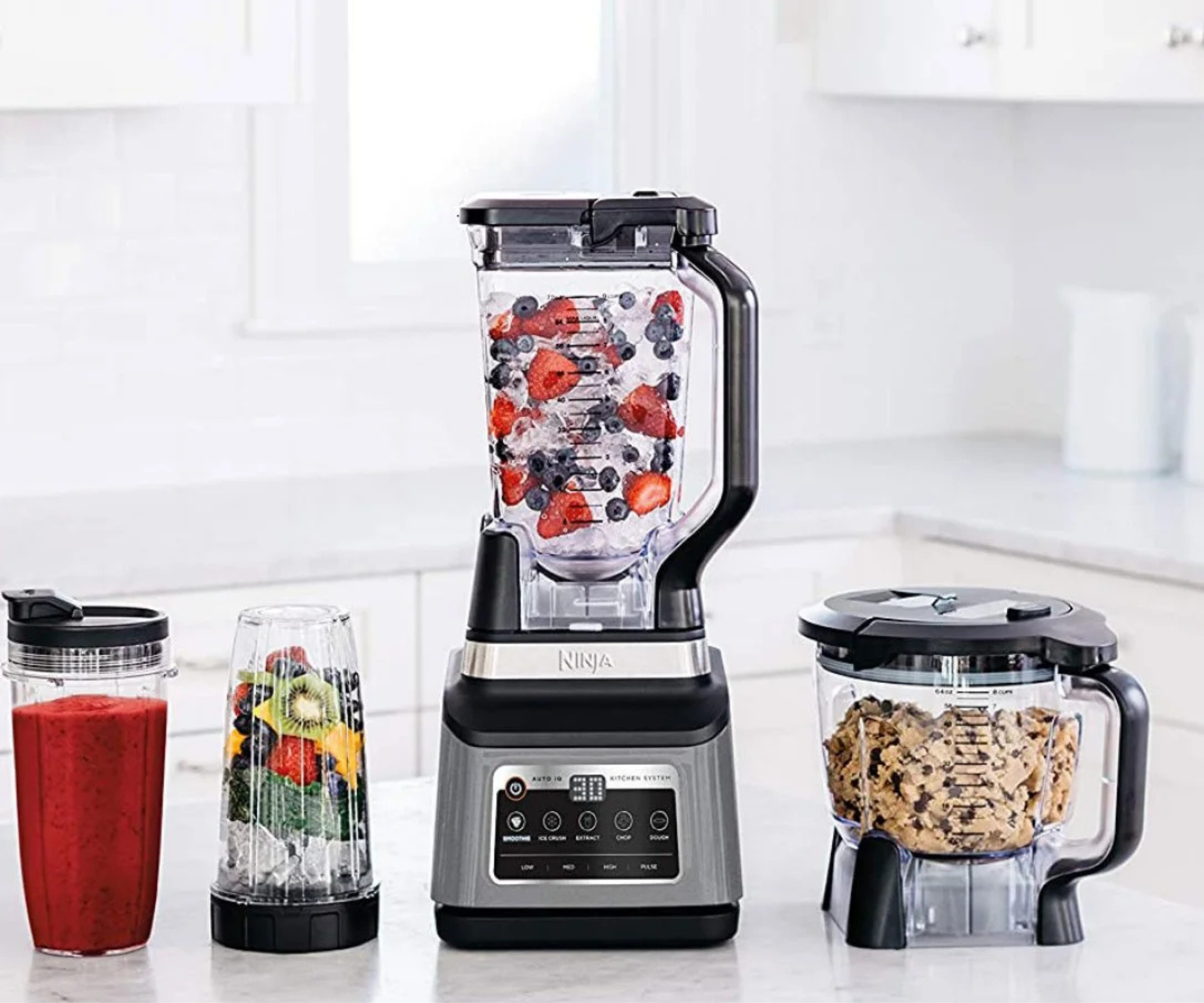
Pros: The best blender–food-processor combos are the ultimate multitaskers. They can handle your smoothie in the morning, then when it comes to meal prep, just add the processor attachment onto the base to start dicing, slicing, blitzing, and more.
There aren't many models on the market, but brands like Ninja and Nutribullet have listened to their audiences and made machines for people who need speed, power, and versatility in the kitchen, but are short on space and budget.
Cons: That said, as a trained cook, I’ve found that combos often mean compromises. They usually don’t match the durability or consistency of the best food processors, like a Magimix or Cuisinart, for example. If you’re serious about cooking, investing in separate appliances will often give better results, even if it takes up a bit more space and money.

This boasts some serious power and capacity. It was faultless across all our tests. If you want an appliance that can do it all and not cost the earth, look no further. Just note, this is huge.
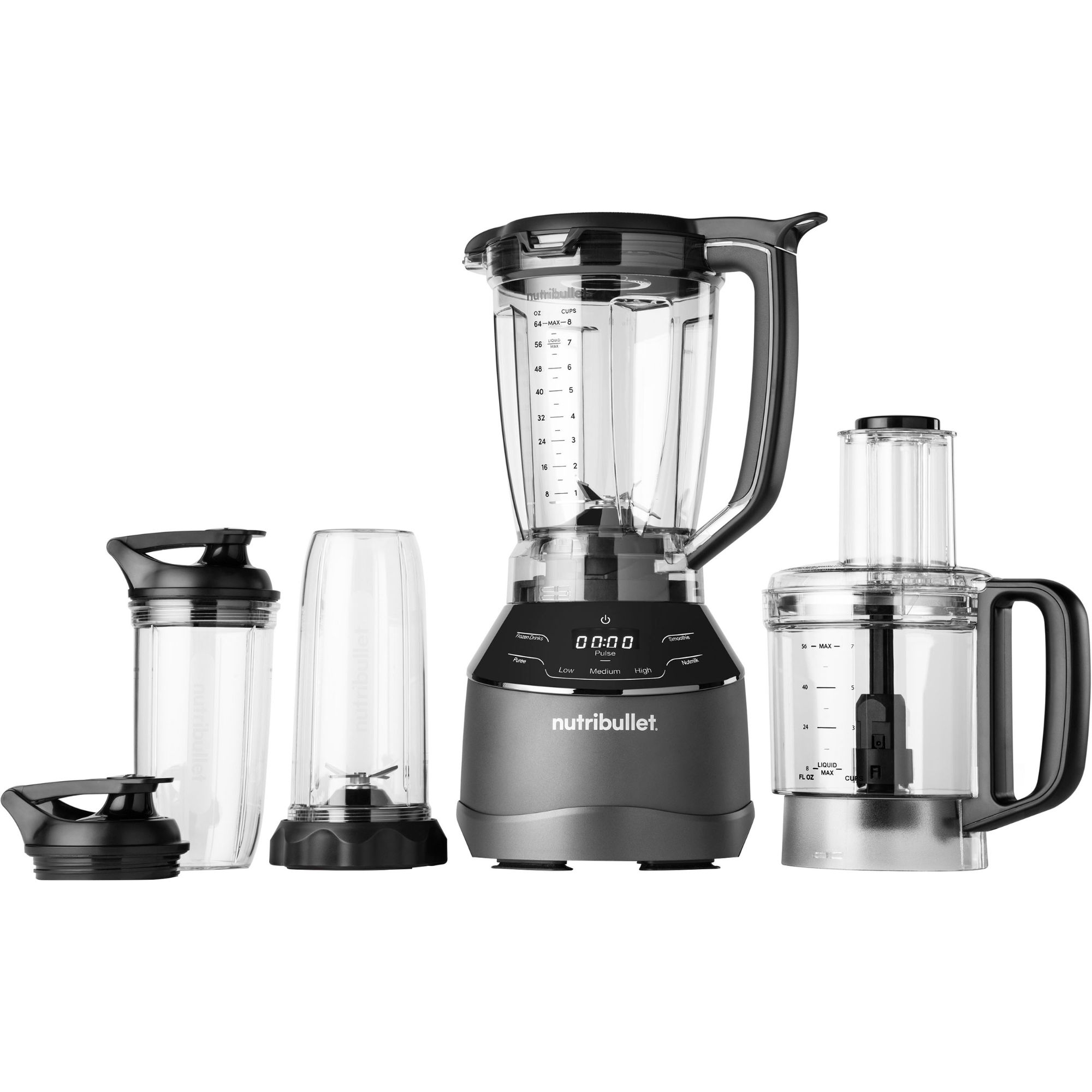
It's more expensive than the Ninja, but more aesthetically pleasing, featuring a touchscreen interface. But it struggles with smaller quantities.

If you don't have a tall cupboard for a big appliance, this option could suit you. The stick blender powers the food processor, so there's no chunky base. It comes with lots of accessories, like a whisk, dough hook, mini chopper, and potato masher.
Pastry blenders
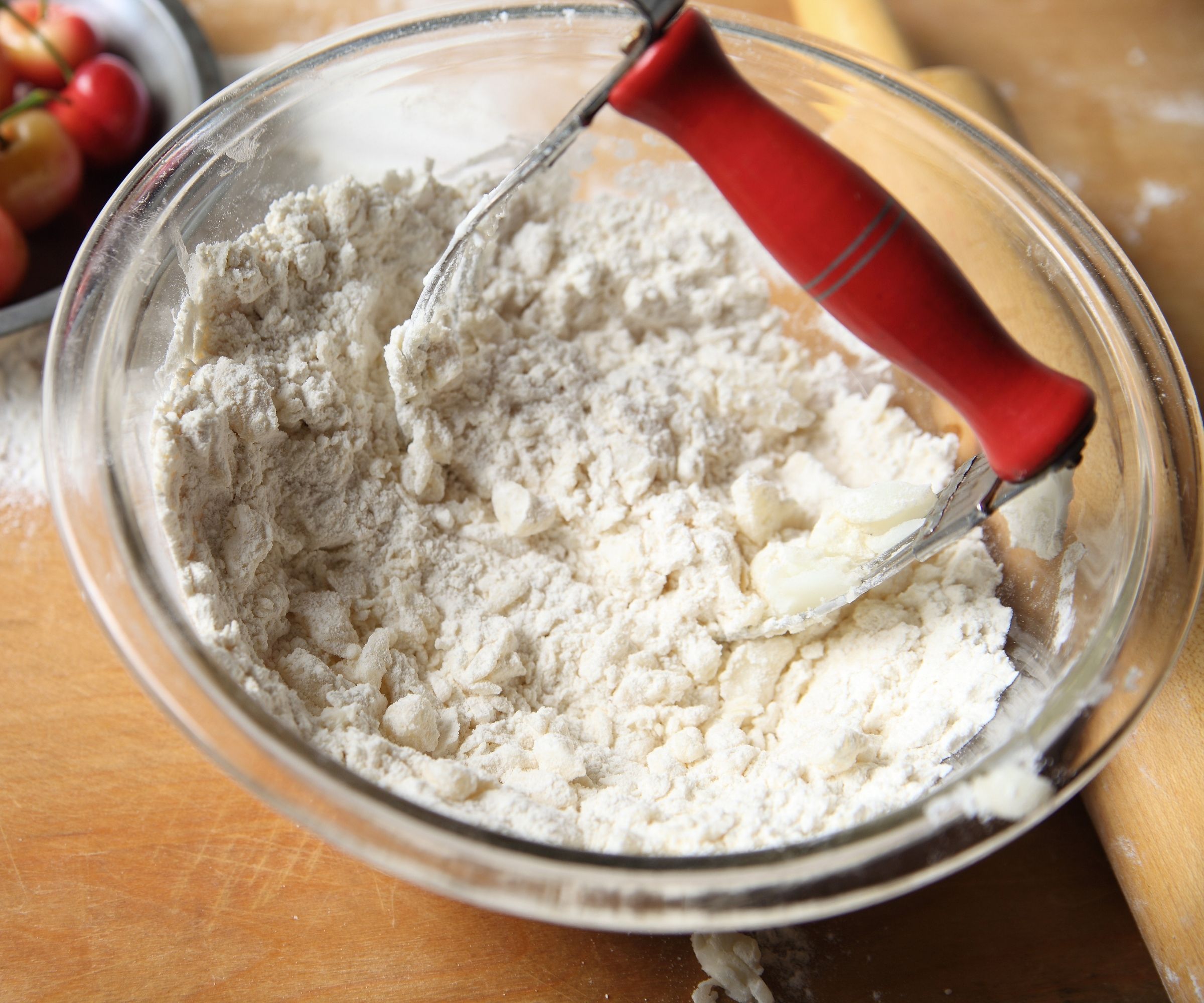
Pastry blenders are not 'blenders' in the traditional sense, but rather handheld stainless steel tools used by pastry chefs and bakers. Pastry blenders cut cold butter into small pieces while coating them in flour.
Most pastry blenders are manual, but there are attachments available for the best stand mixers and food processors, too.
In short, if you're looking to make beautifully flaky pastry with rich, crumbly crusts, a pastry blender will be useful. If you're looking to make soups and smoothies, forget I ever said anything – scroll past this section and onto the next.
The best blender brands: compared by an expert
I've tested models from all the brands below, and they each have their unique designs, prices, materials, and reliability credentials. Here's my expert take on each one and how they stack up against each other.
Vitamix
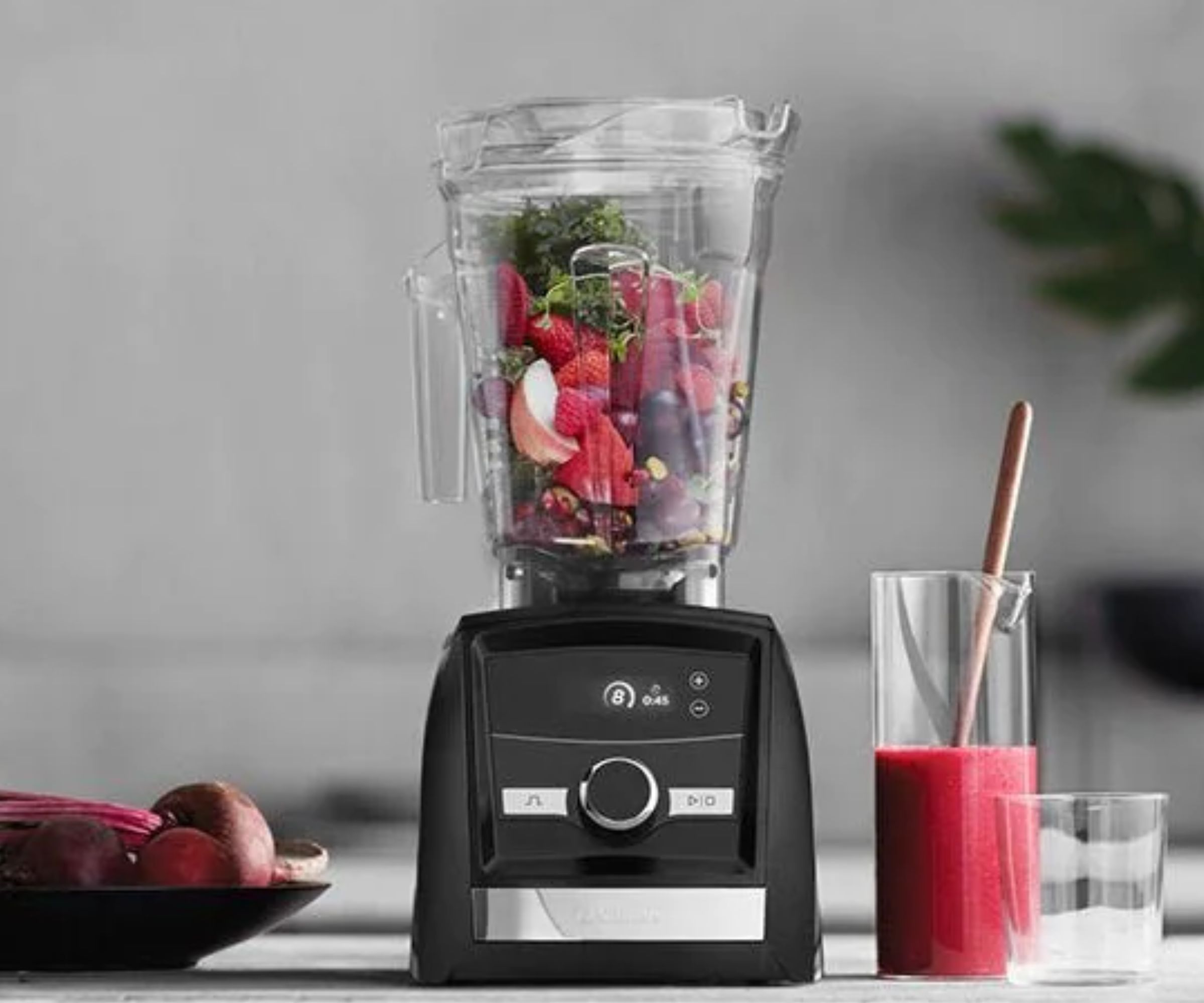
Vitamix makes large, luxury blenders with unparalleled power. The brand is frequently touted as the gold standard in the blender industry, and it's easy to see why; their models boast exceptional power, torque, versatility, and longevity.
Vitamix blenders use airplane-grade steel, the vortex blend systems are uniquely effective, and the controls feel really premium. It's no wonder the brand is a trusted favorite of A-list celebrities and professional establishments, like Starbucks and Jamba Juice
The caveat is that they are expensive, but their robust motors can last for years; my mom has had hers for nigh on a decade. Vitamix does make a more affordable Explorian range. I loved the Vitamix Explorian E520 (the link goes to my review).
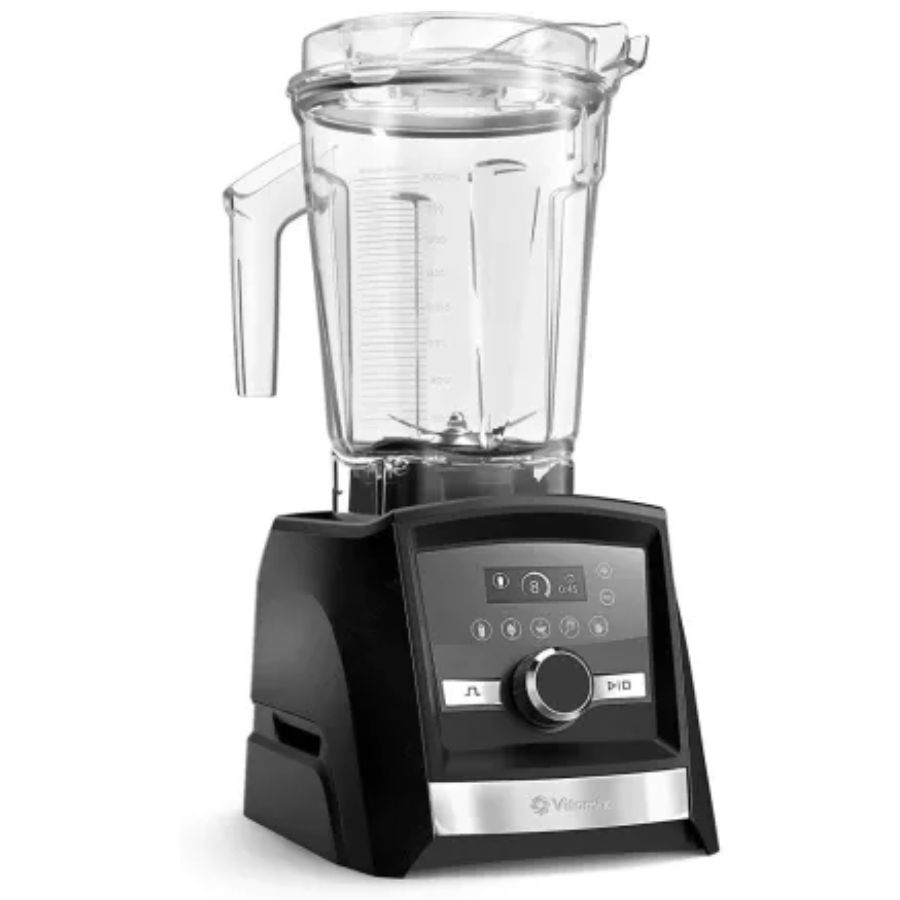
The variable speed control and pulse features of this blender can whip up every texture, perfect for catering to a whole host of family needs. Due to this blender's self-detect technology, the base will adjust the settings according to whichever container you choose – you can even add a food processor attachment.
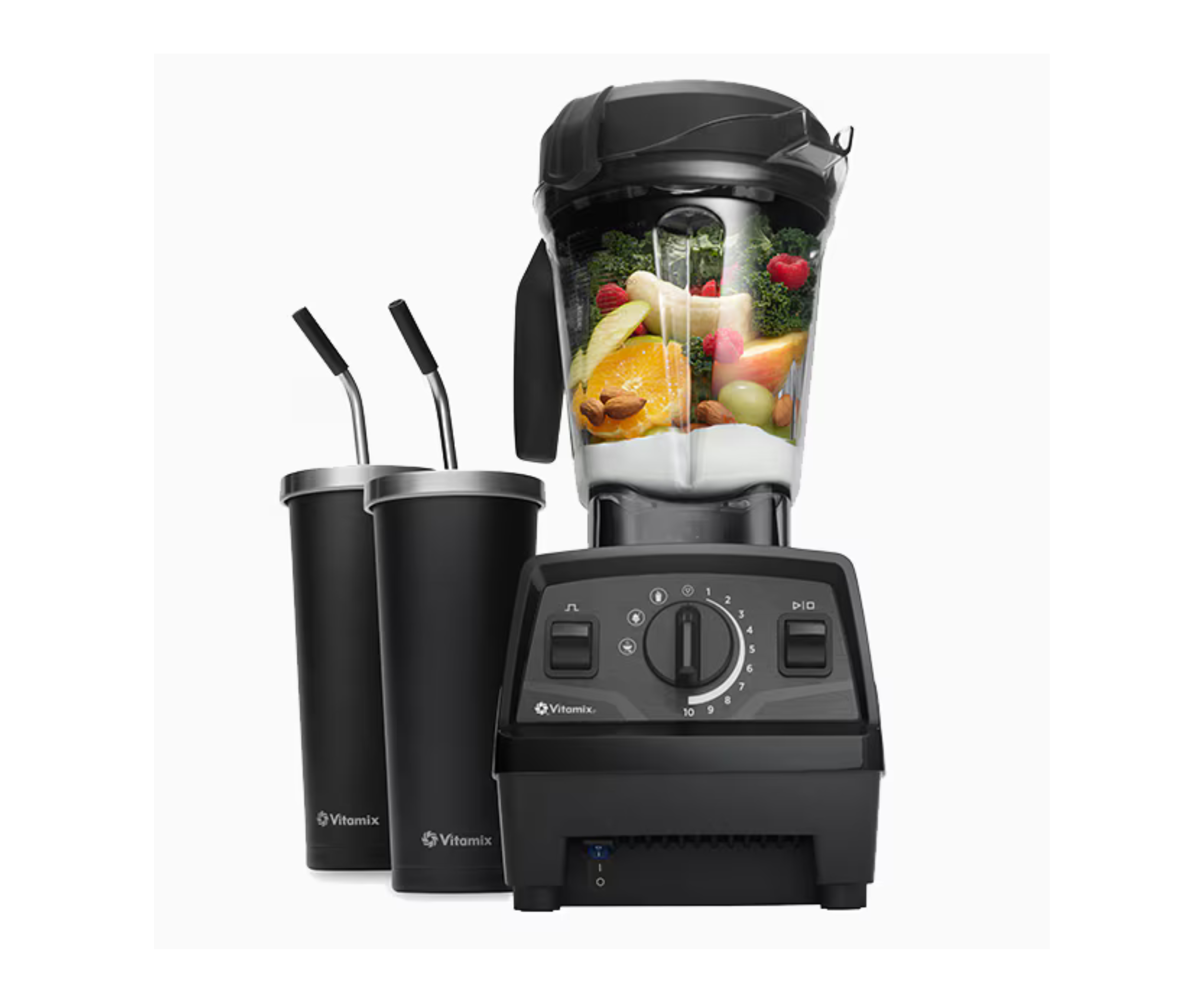
The Vitamix Explorian E520 is just so easy to use. I loved the wide, squat design but was slightly irked by the stiff lid. It's a fantastic price, but it's tough to find it in stock online, so grab it where you can.

This is the most affordable Vitamix blender in the range and it's pretty impressive. The 10 speeds can blitz, pulverize, and liquidize its way through almost anything. It’s simple to use and easy to clean, but the downside is that the blades get warm and there are no safety features to stop it switching on without the lid in place.
Nutribullet
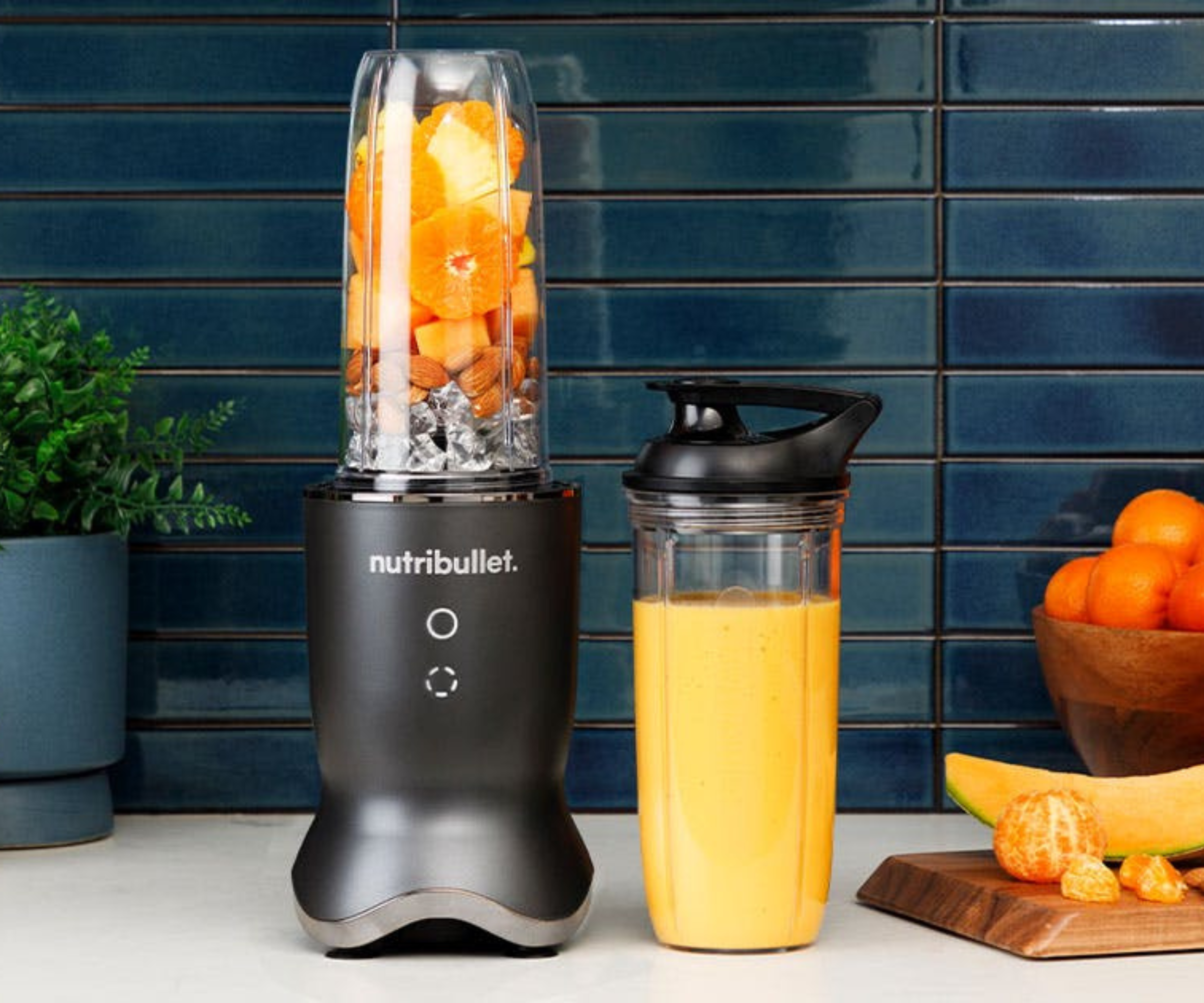
NutriBullet blenders are famous for their compact, bullet-style design, which provides single-serve convenience. With just a twist, the best Nutribullet will have your morning smoothie ready in seconds – no fuss, no bulk. NutriBullet has expanded beyond its single-serve options, with family-sized blenders which are affordable, but nowhere near as sturdy, durable, or powerful as a pro-level Vitamix will be.
In my experience, Nutribullet blenders are often heavily discounted on Amazon Prime Day and during national sales events, which makes them a smart buy if you’re looking for value.

This is the best single-serve blender our team has ever tried. It lives up to it's name – ultra powerful and speedy. Nutribullet's most recent iteration, the Ultra Plus, turns the powerful base into a food processor, too.
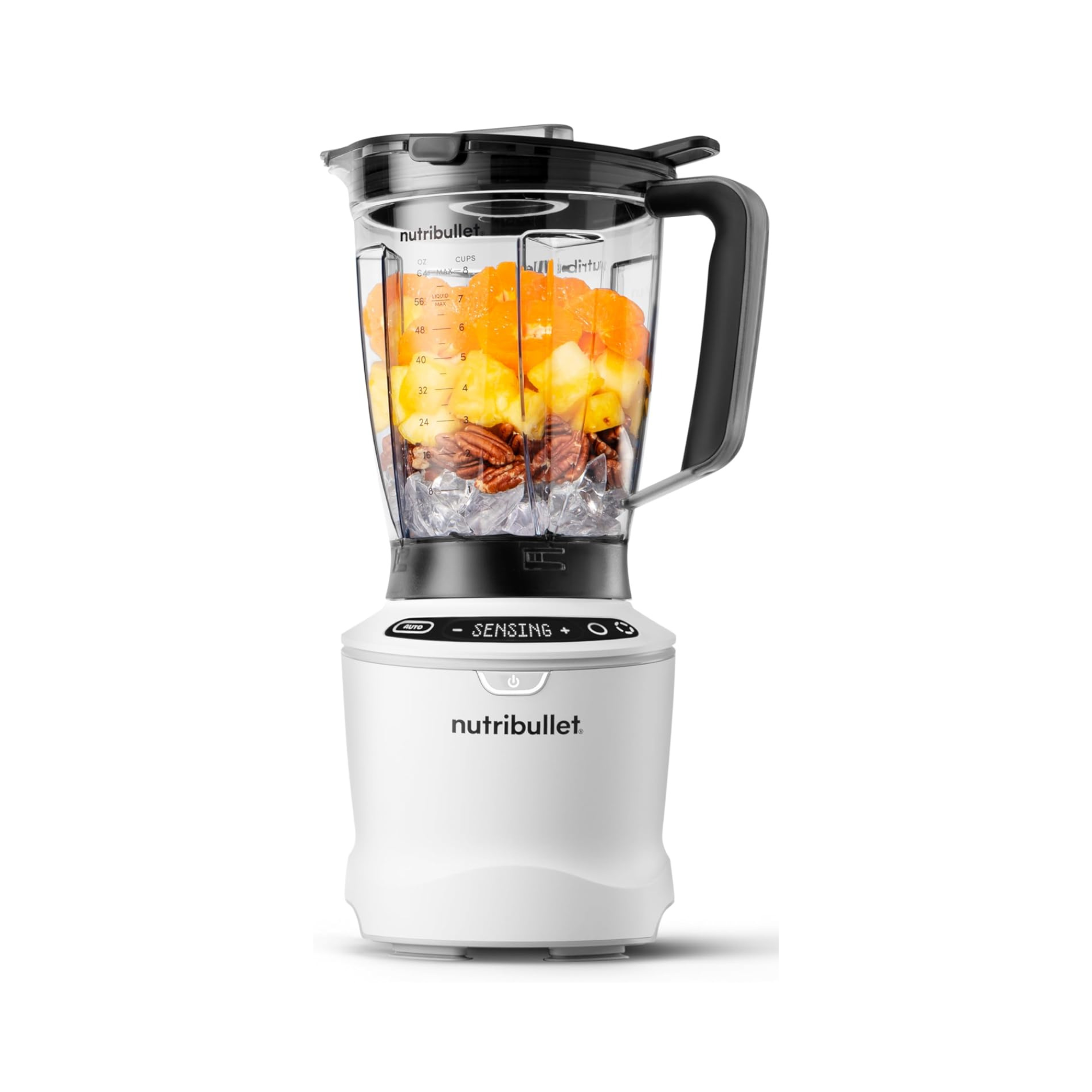
A larger, family-friendly option with smart programs for bigger batches. It's affordable compared to other countertop brands, simple to use and great for beginners. It has automatic sensors and a variety of presets, but struggles on dry dips and can't crush ice.
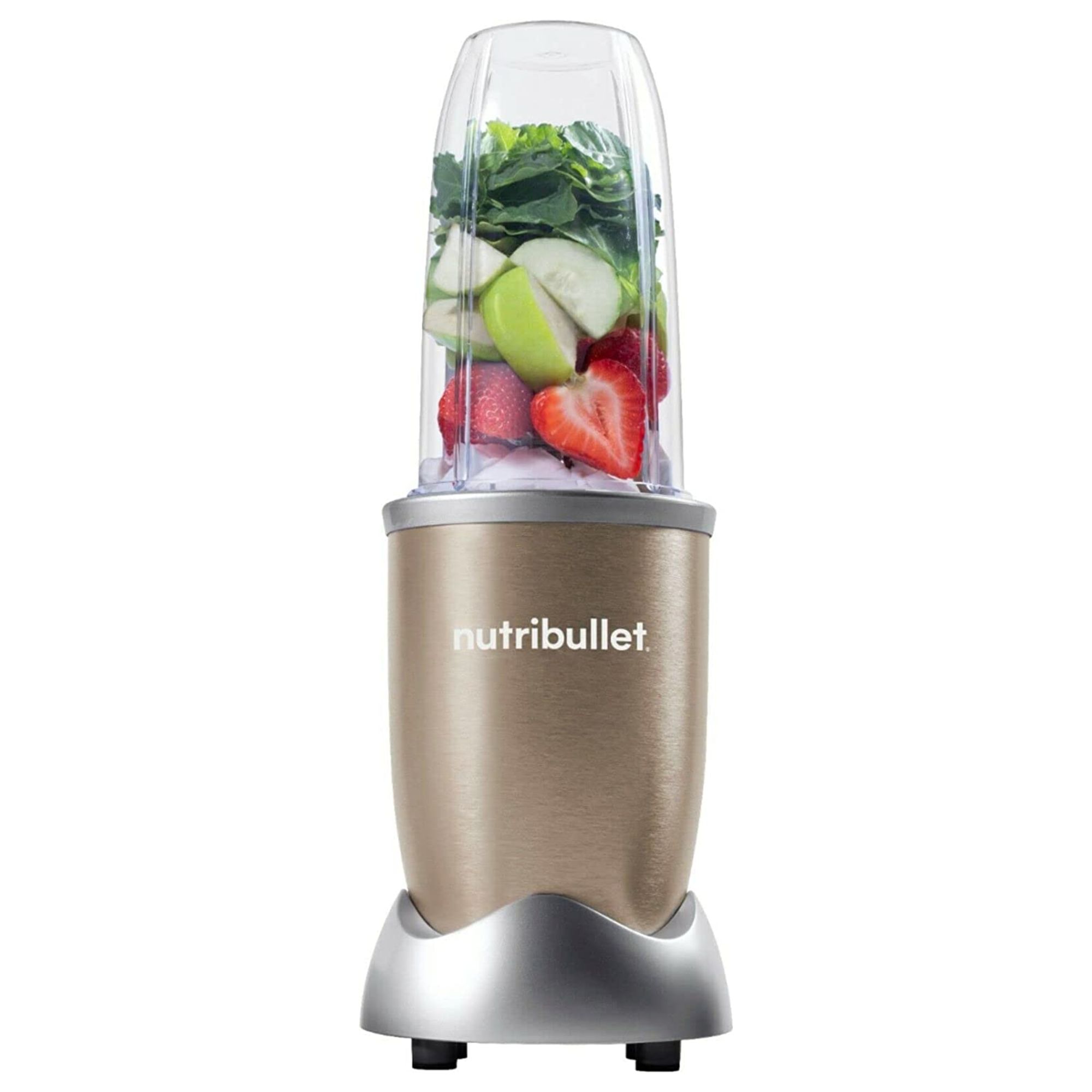
Nutribullet's Pro 900 used to be our favorite-ever personal blender, but it's recently been surpassed by the more powerful, speedy Nutribullet Ultra. If you want to save some money, though, it is still a good option.
Ninja
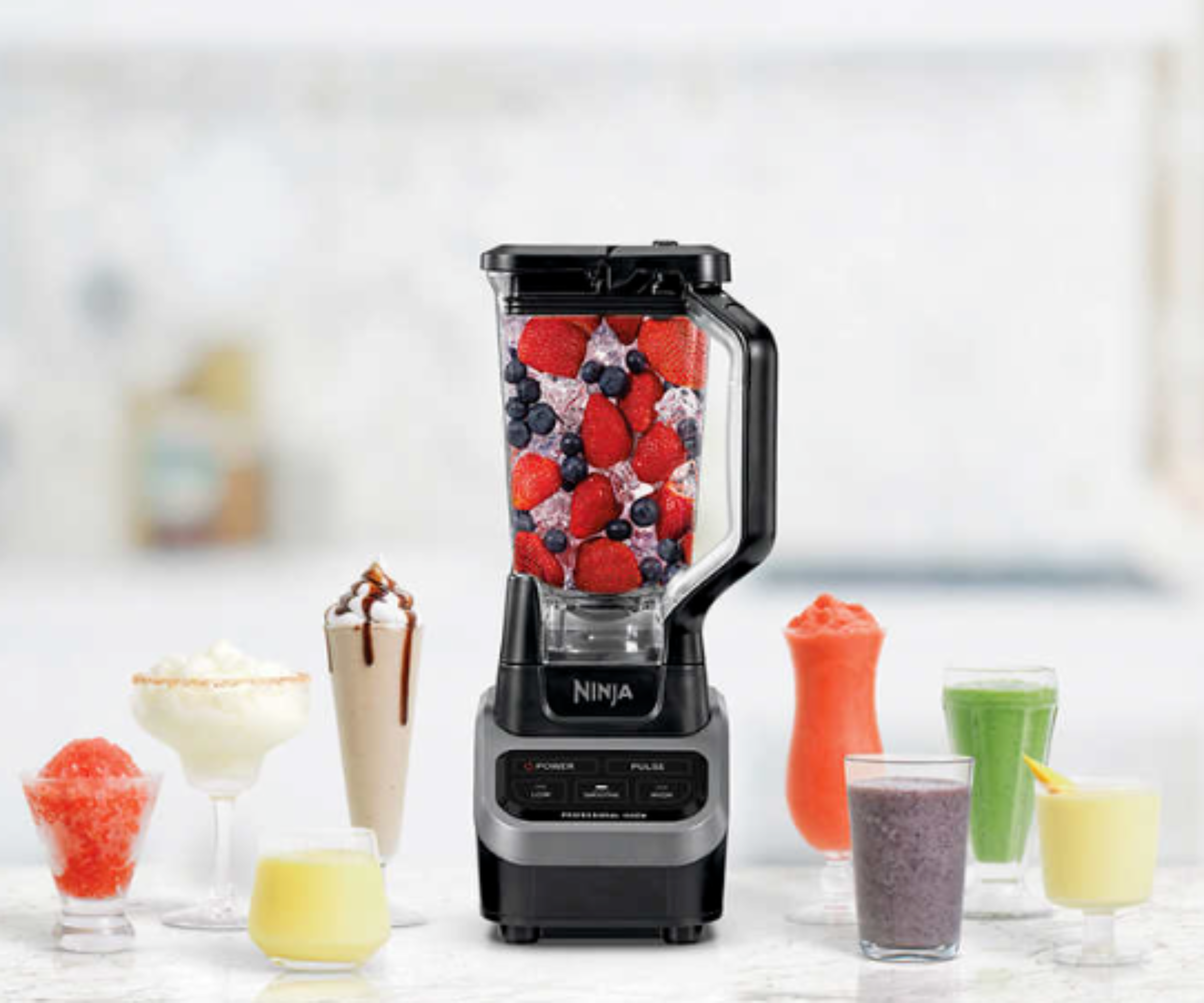
Ninja is famous for its fun, user-friendly appliances. Their blenders don’t hit the same professional performance tier as Vitamix, but they are impressive and priced at a fraction of the cost. Many Ninja blenders come with fun features, like heating elements, food processor attachments, or Auto-iQ programs that handle everything from smoothie bowls to pasta sauce. This makes Ninja a smart 'all-rounder' for everyday cooking.
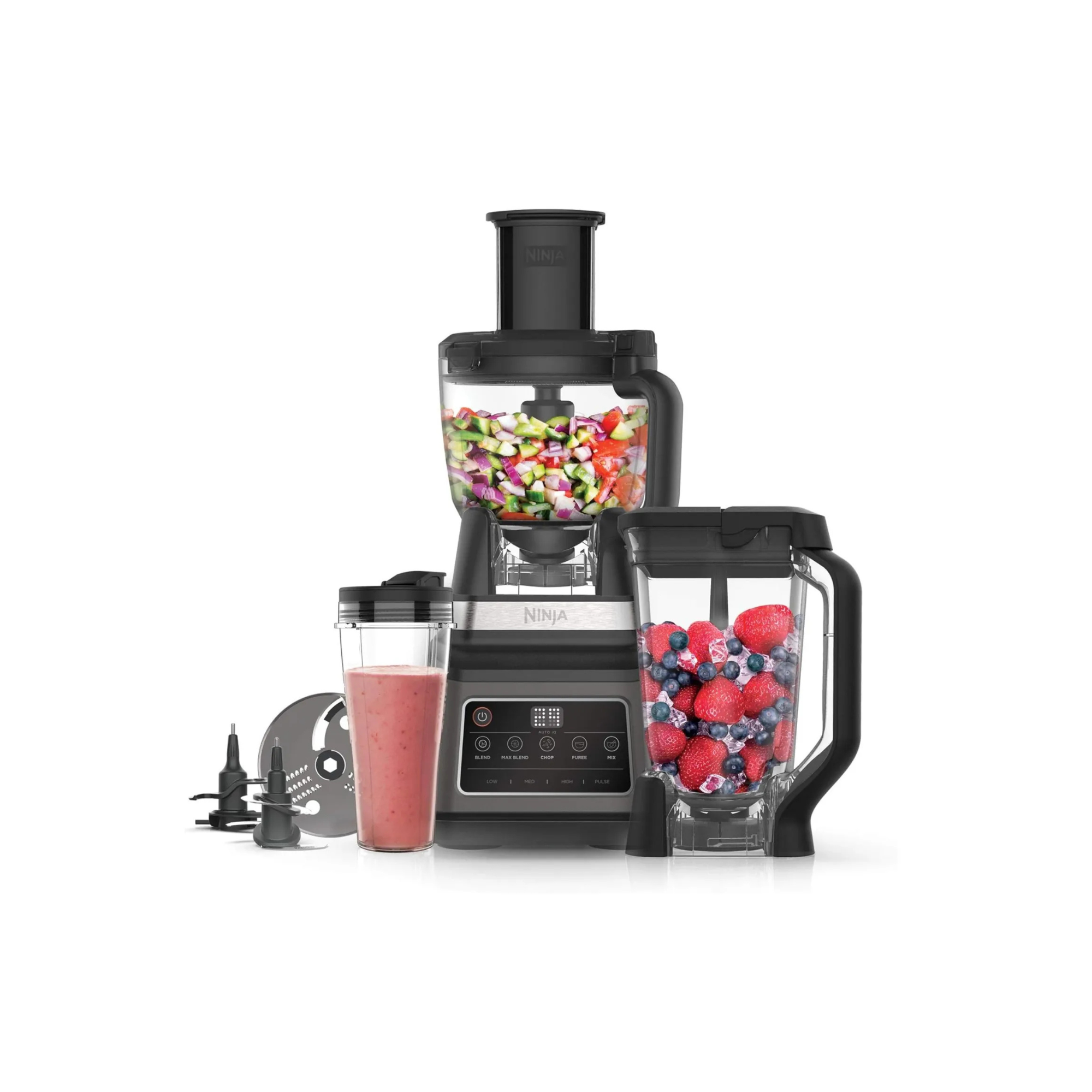
This blender offers a whole world of possibilities. It's a family-sized, powerful, versatile blender, which has attachments for small and large blends, as well as the capability to turn into one of the best food processors we have tried. It's great value for what it does.
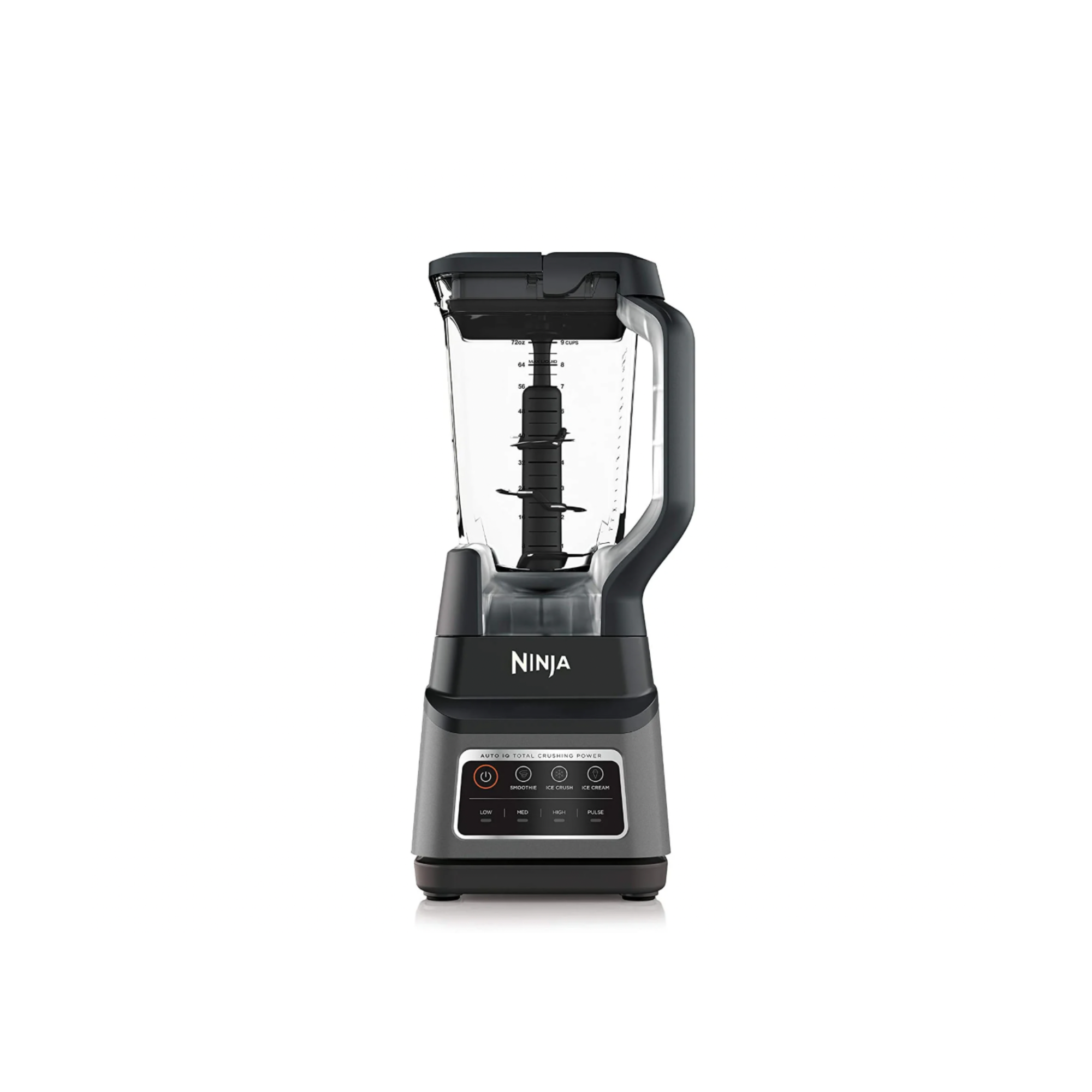
If you need a simple and budget-friendly blender for your kitchen, then the Ninja Professional Plus has everything you need. With generous capacity, simple presets, and intuitive controls, this ticks all the boxes when it comes to everyday use.
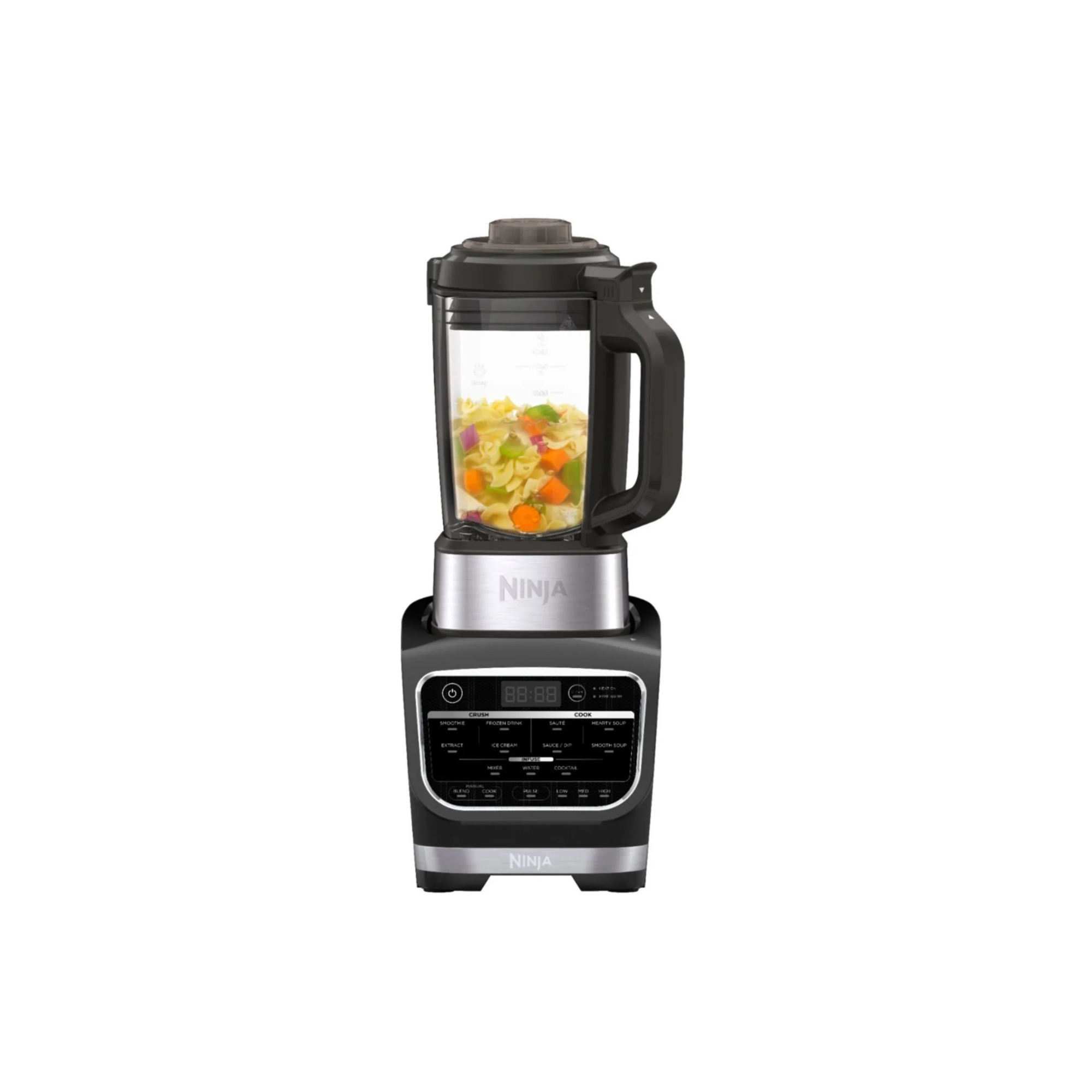
This blender can sauté vegetables and turn them into piping hot soups and sauces. It's also great on smoothies, desserts, and frozen drinks. It's quite tall and heavy, but everybody on our testing team loves it.
Zwilling
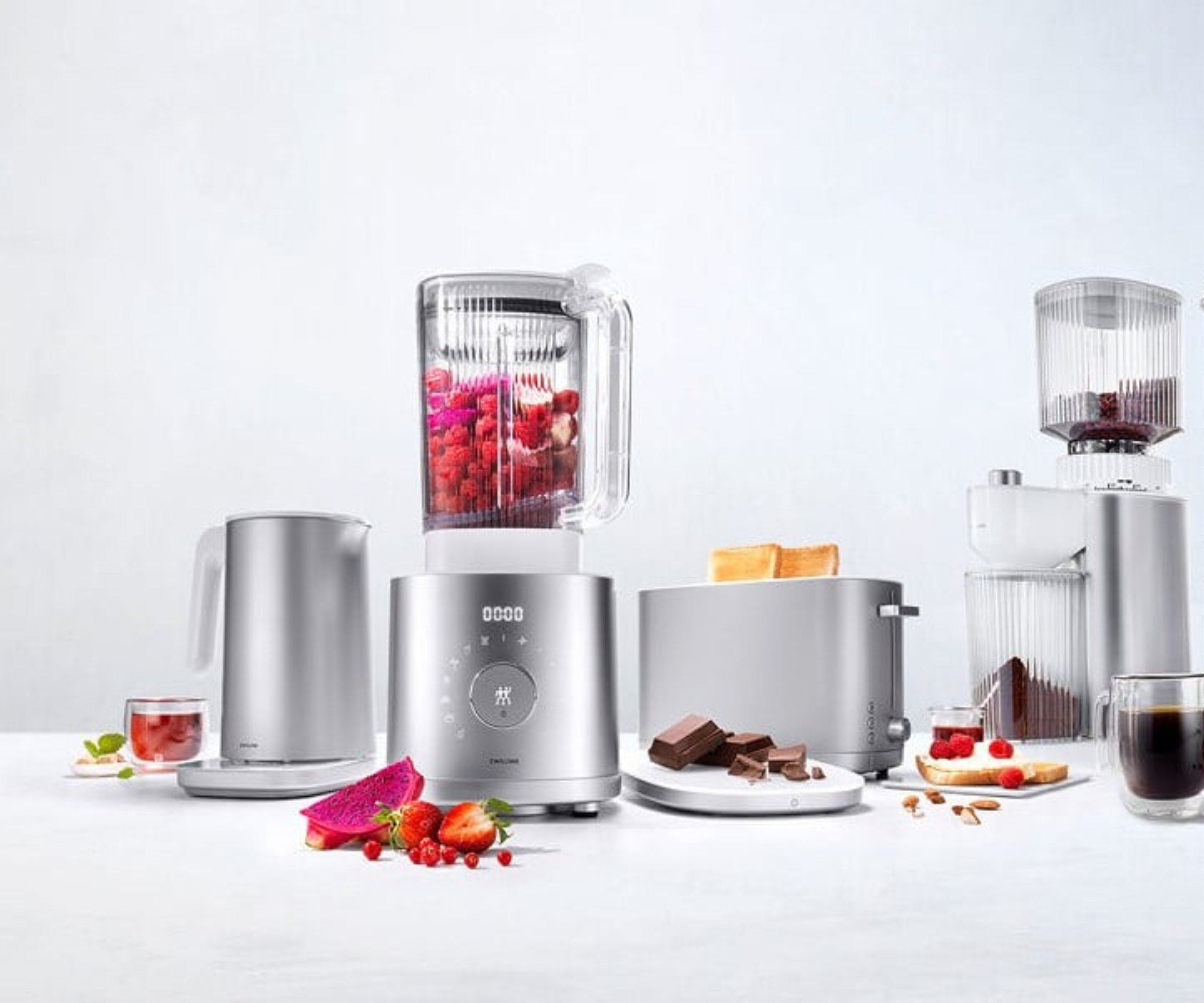
Best known for their super sharp German knives, Zwilling pours precision into their countertop blenders. The Zwilling Enfinigy range has three blenders; all quick, sleek, and design-forward. They are simple, yet ergonomic and quiet blenders; this brand a good match for early morning smoothies and minimalist kitchens.
In my experience, Zwilling is not powerful as Vitamix or as multifunctional as Ninja. The range is pretty straightforward; nothing fancy, but certainly beautiful.
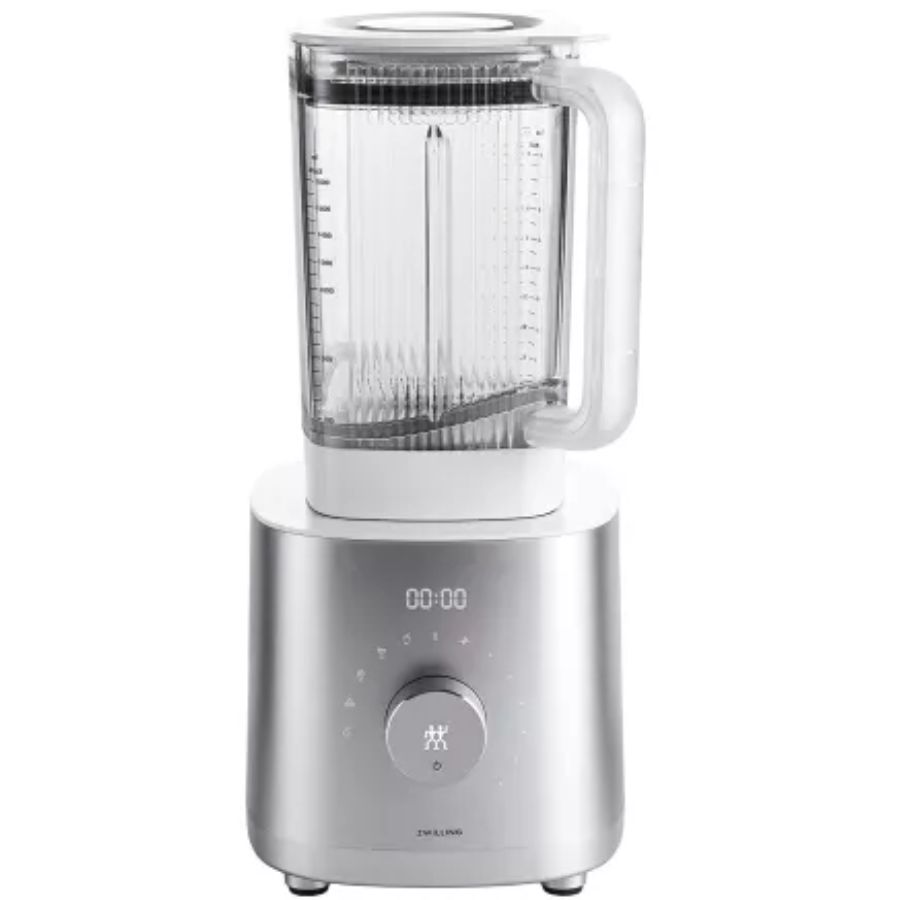
This sleek blender can handle any fruit or vegetable you throw at it. It excelled on crushing ice, too. The Zwilling is a beautiful appliance and reasonably priced, too.
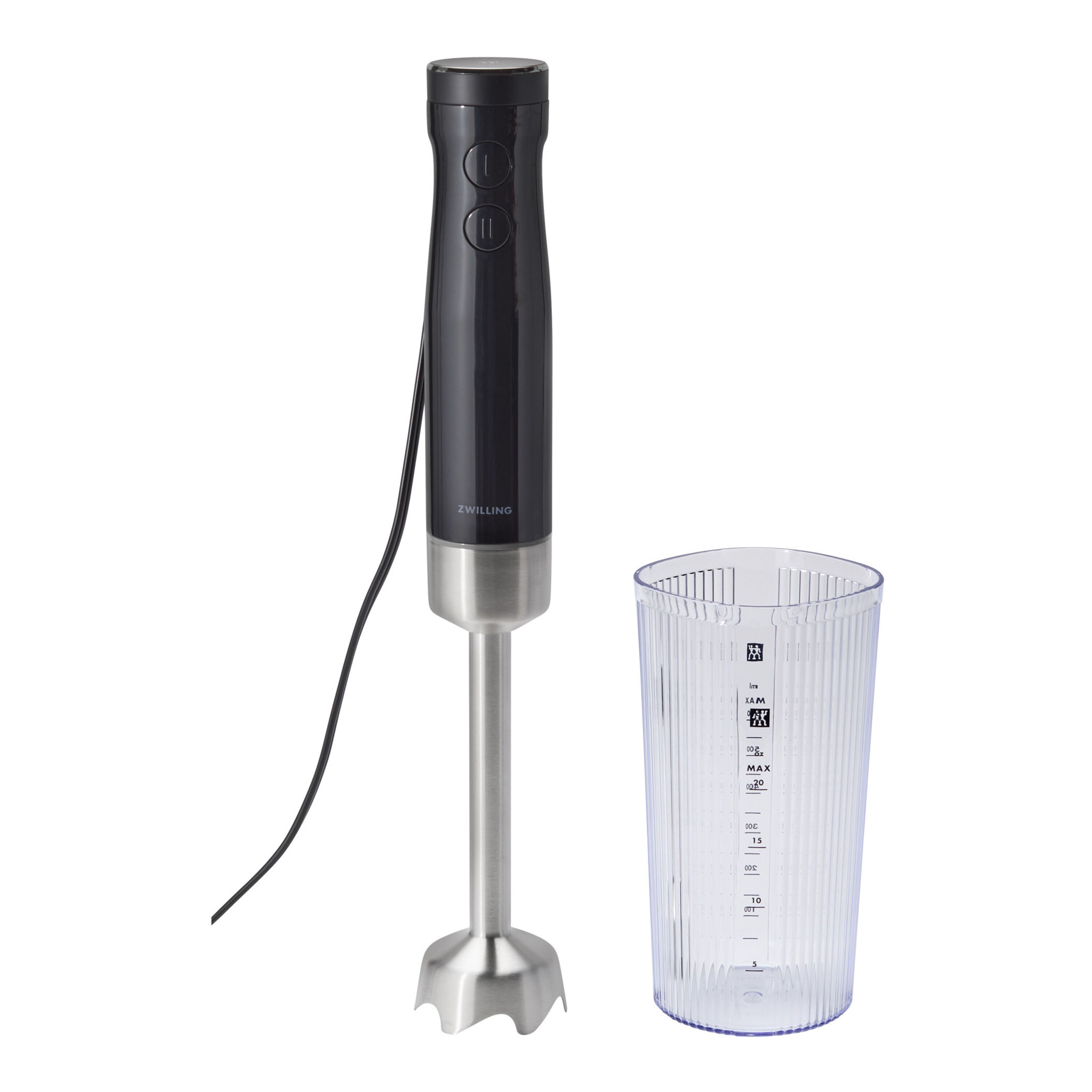
We haven’t tested this model ourselves, but it’s part of Zwilling’s sleek Enfinigy range and has excellent customer reviews online. If none of our recommended immersion blenders catch your eye, this one could be a nice option – especially if you want to create a coordinated set with other Zwilling appliances.
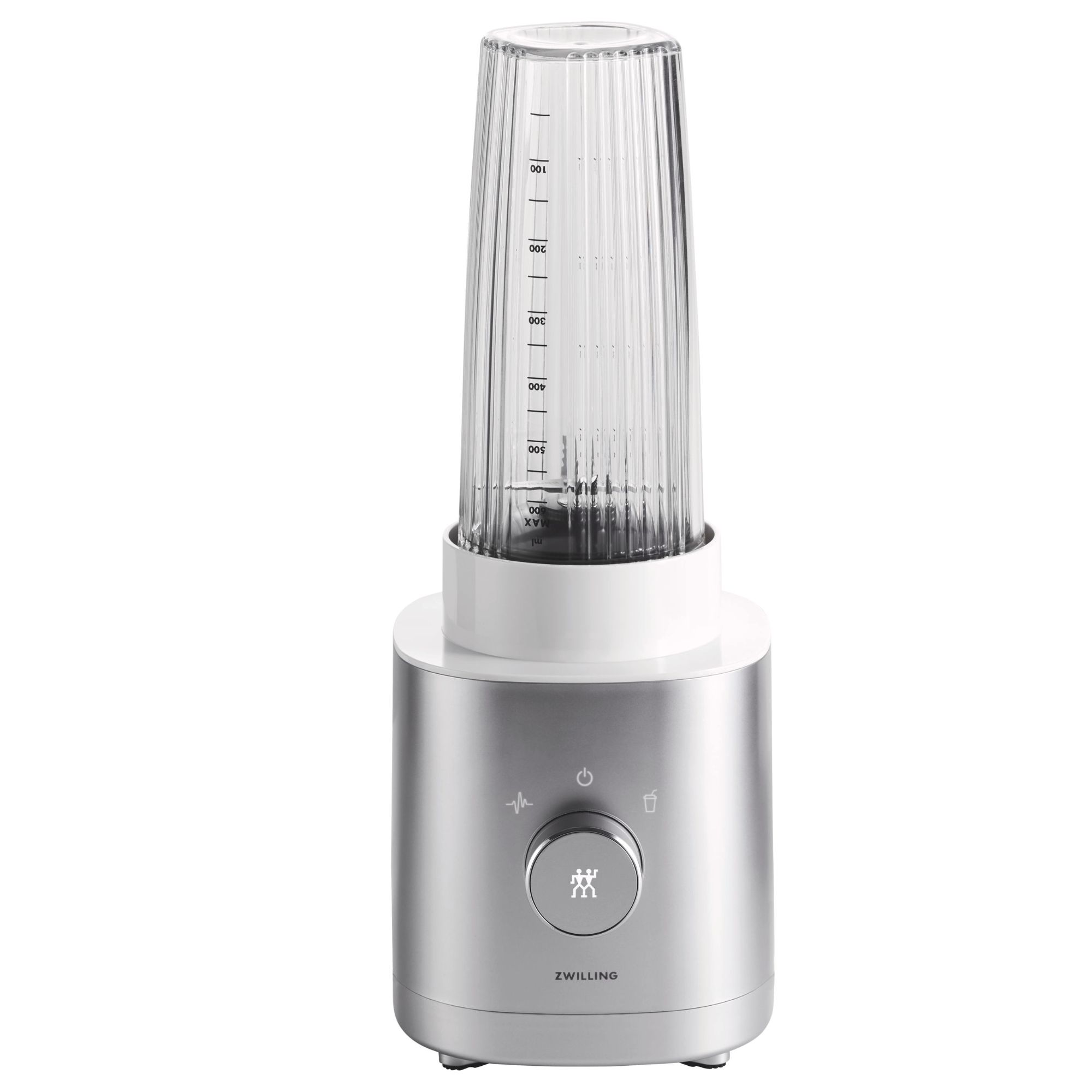
Although this is less powerful and versatile than the best personal blender, the Nutribullet Ultra (it can't hack ice, for example), I still think it's a fantastic buy for smoothie lovers. I marvelled at my vibrant, silky smoothies. The blender itself is equally stunning.
Braun
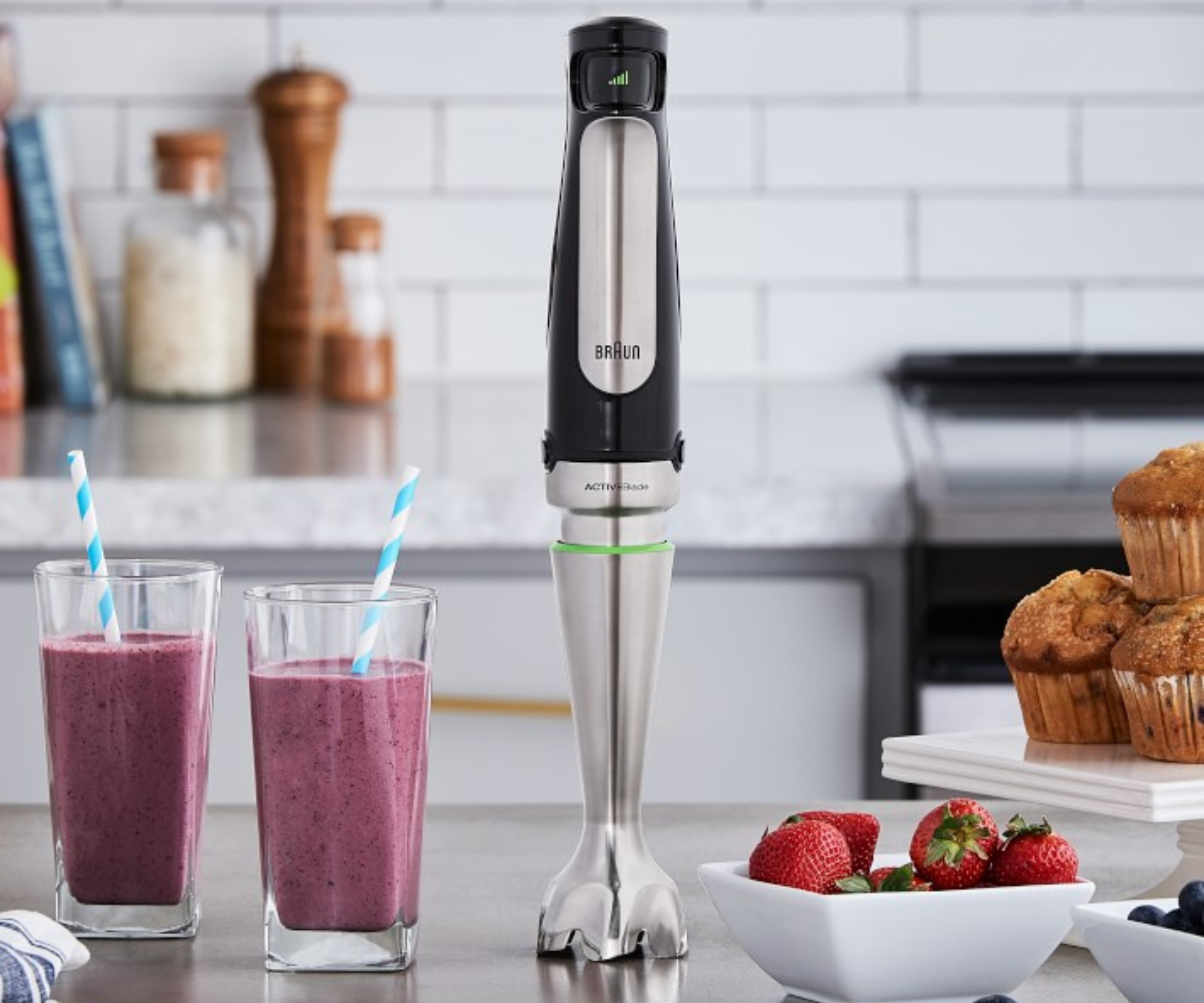
Like Zwilling, Braun blenders shine for their German engineering, offering practical, reliable performance and consistent results – even with fibrous or tough ingredients. Models we've reviewed like the Braun TriForce come with multiple automatic programs, crushing ice and whizzing smooth soups, smoothies, and nut butters effortlessly – and their range of versatile hand blenders is second to none.
The only problem is that they can get a little bit noisy – premium experience isn't exactly front of mind for this brand. But for the price, I think the Braun brand is extremely good value for money, especially when compared to luxurious competitors with similar performance, like Vitamix and Bamix.

When we tested this $200 Braun against luxury Vitamix models that cost up to $700, the results were nearly identical. Miraculously, the Braun was actually faster at blending ice and making soup. It's excellent value, but very noisy.
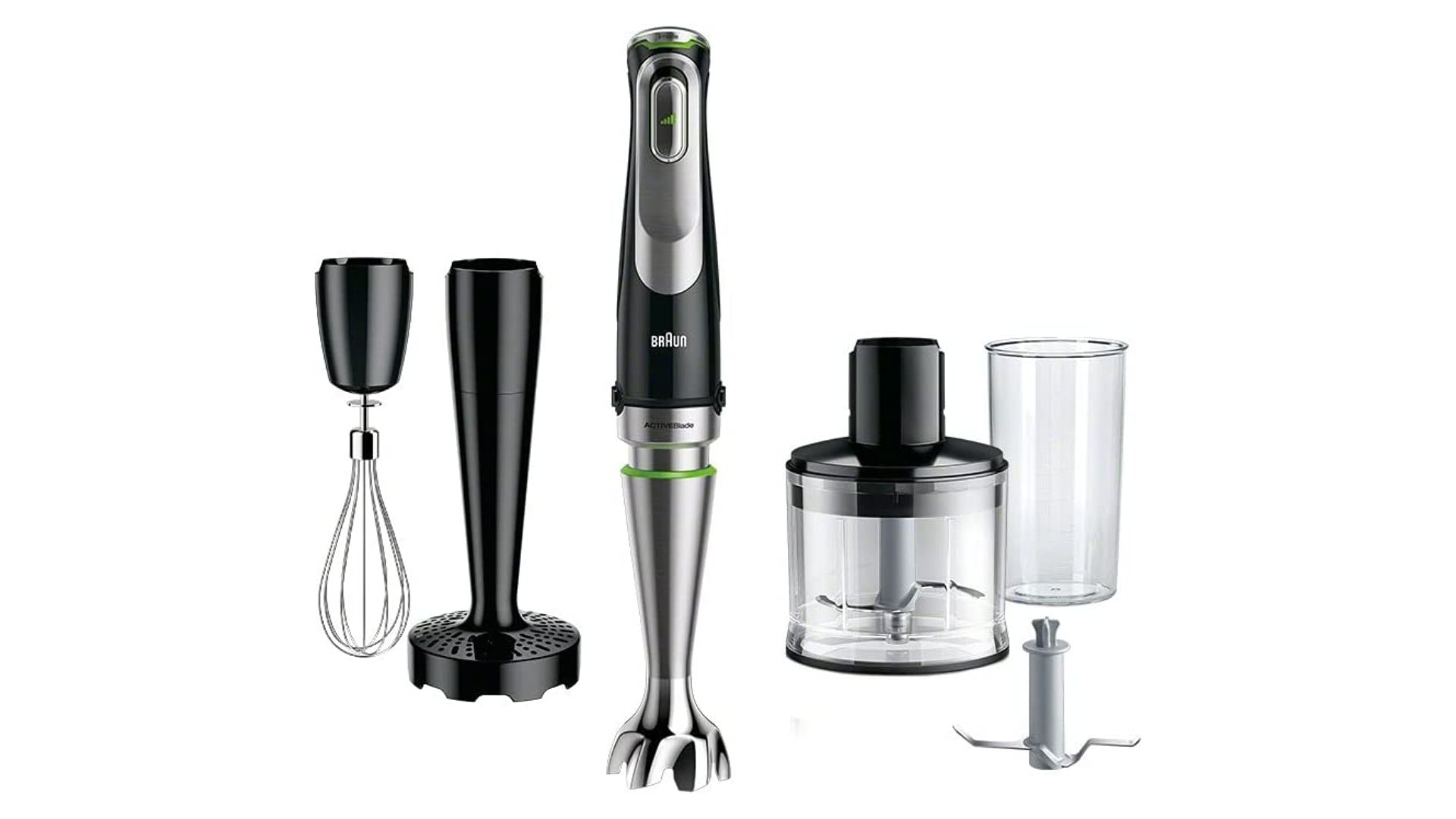
We tested the Braun MultiQuick 9 alongside a range of the best immersion blenders from Cuisinart, KitchenAid, and Smeg – and it was definitely the most powerful and easy to use. We made the smoothest pea soup, with chunky onions, mint, and pea skins disappearing into nothing.
KitchenAid
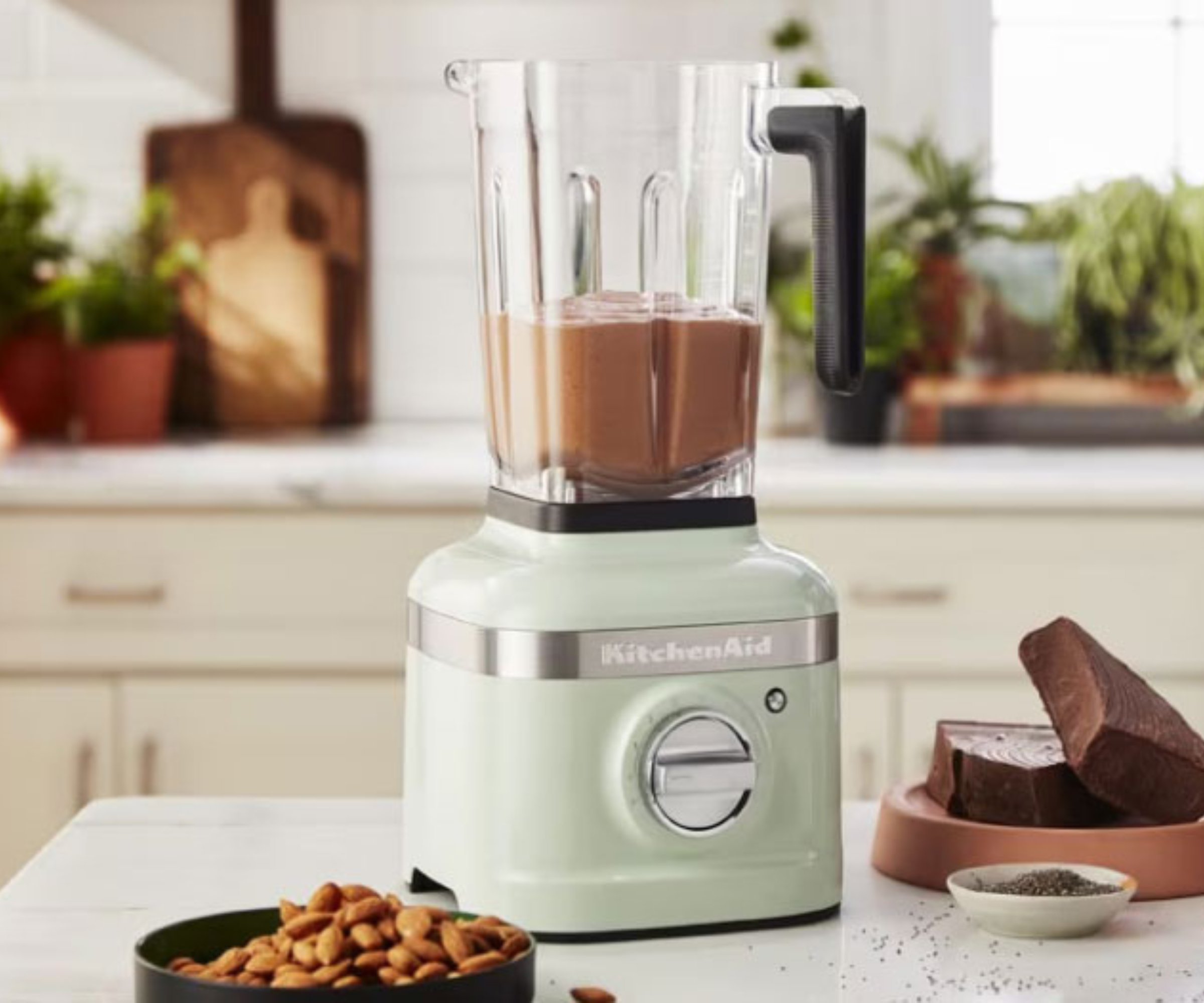
KitchenAid blenders offer a delightful blend of vintage charm and modern performance. With a range of vibrant colors like Beetroot and Mint Julep, these blenders add a personality to any kitchen. Their retro-inspired design sets them apart from the more utilitarian designs of Braun and Ninja.
KitchenAid isn't exactly the best in class, but their models are still pretty good and more than deliver on smoothies and soups (the immersion blender is the most highly-rated option in their range). If you're looking to match your blender with other KitchenAid appliances or seeking a statement piece for your countertop, KitchenAid delivers.
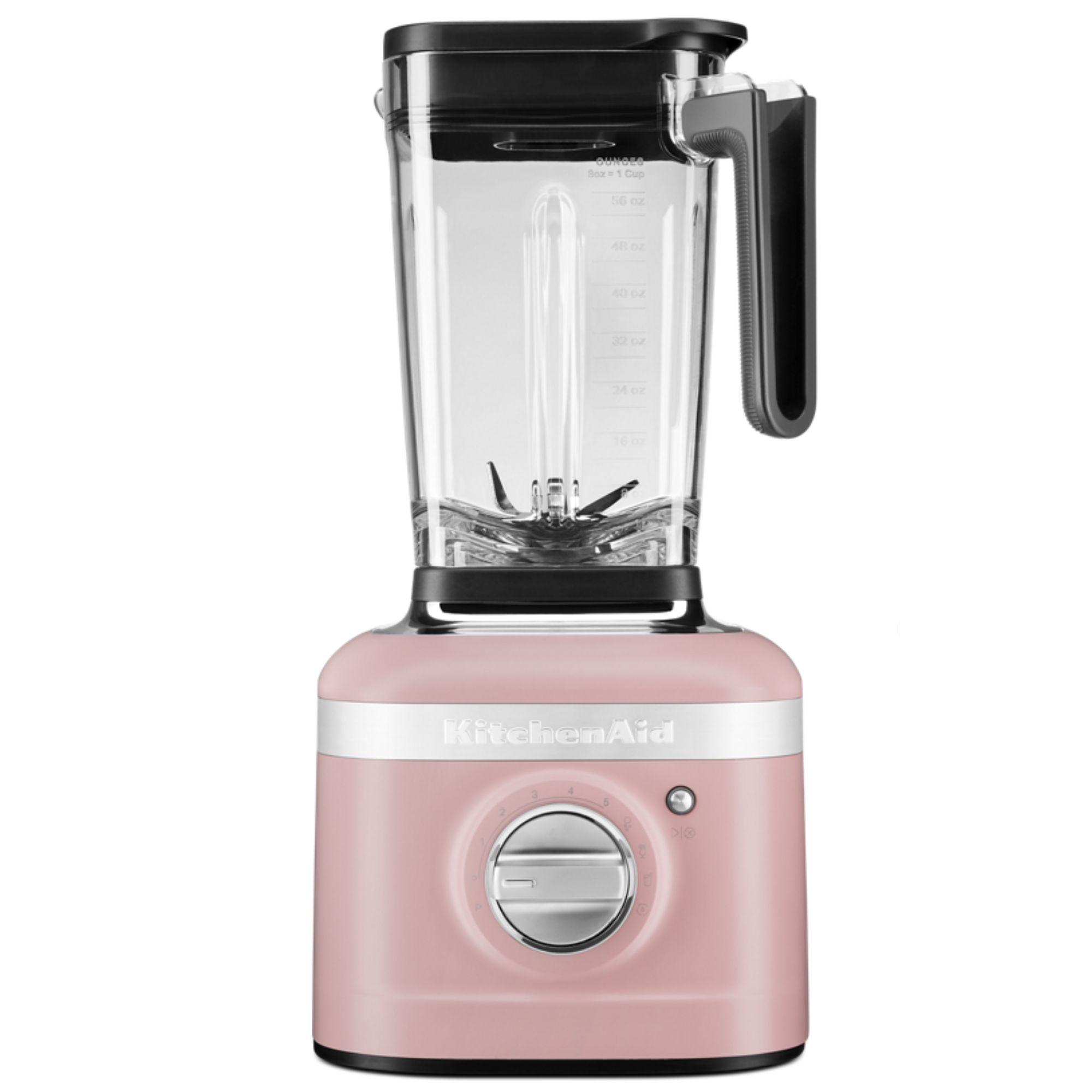
The KitchenAid K400 Blender has a sturdy design that, it's immediately apparent, will last the test of time. It also looks great, and will sit pretty next to the best stand mixer on the market - the Artisan. A running theme in this brand comparison section; it's not as impressive or versatile as a Vitamix.

If you want variable speeds without the cord, this is a durable, reliable option from the KitchenAid brand. It's a basic, older design, but beloved by many bakers and pro cooks.
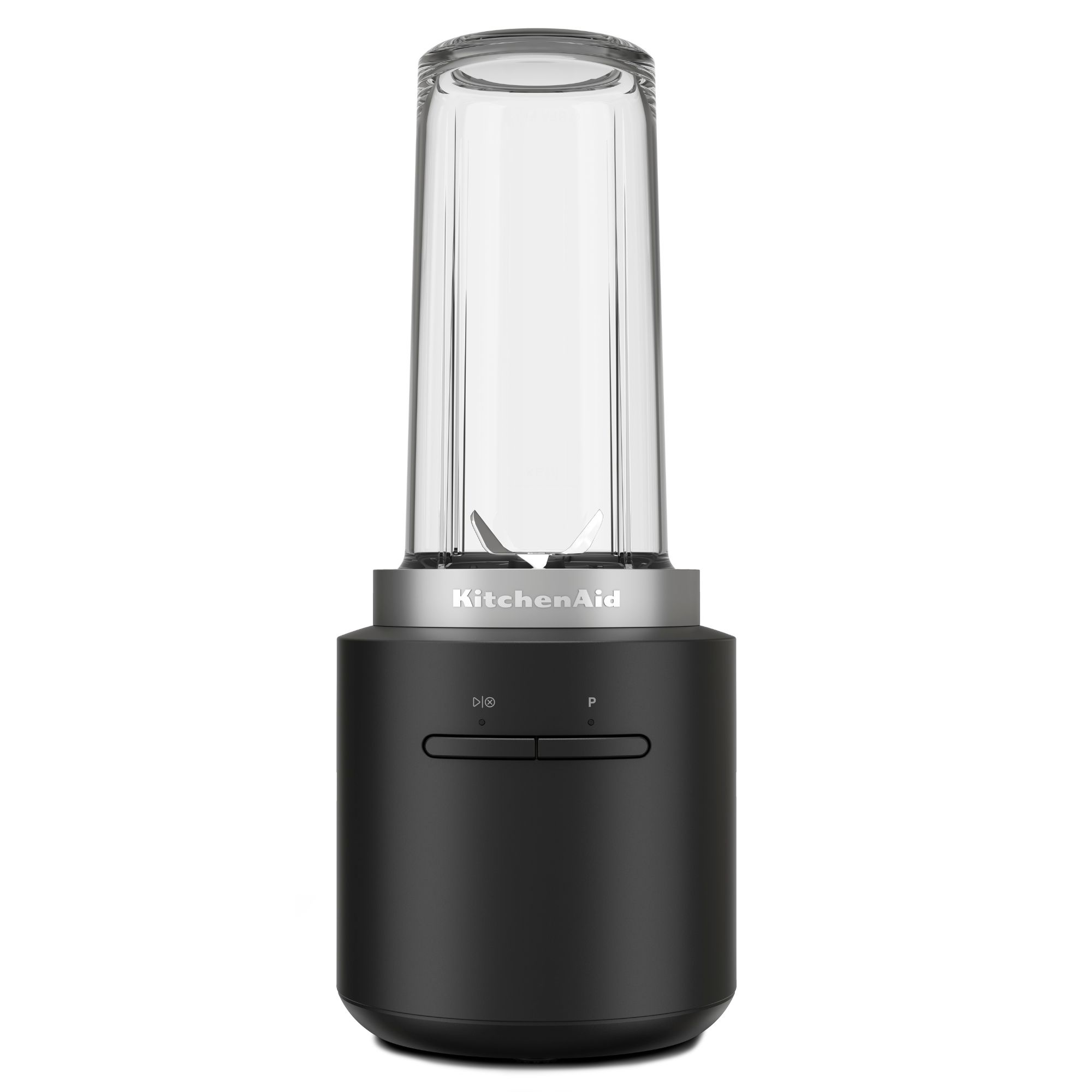
If you're fed up with personal blenders that make small glasses of smoothie, you'll love this KitchenAid. It's big, powerful, and completely cordless without being too bulky or heavy. It might be more than some people need, but it's a good investment for campers and couples who share smoothies in the morning.
Other brands: Smeg, BlendTec, Beast & more
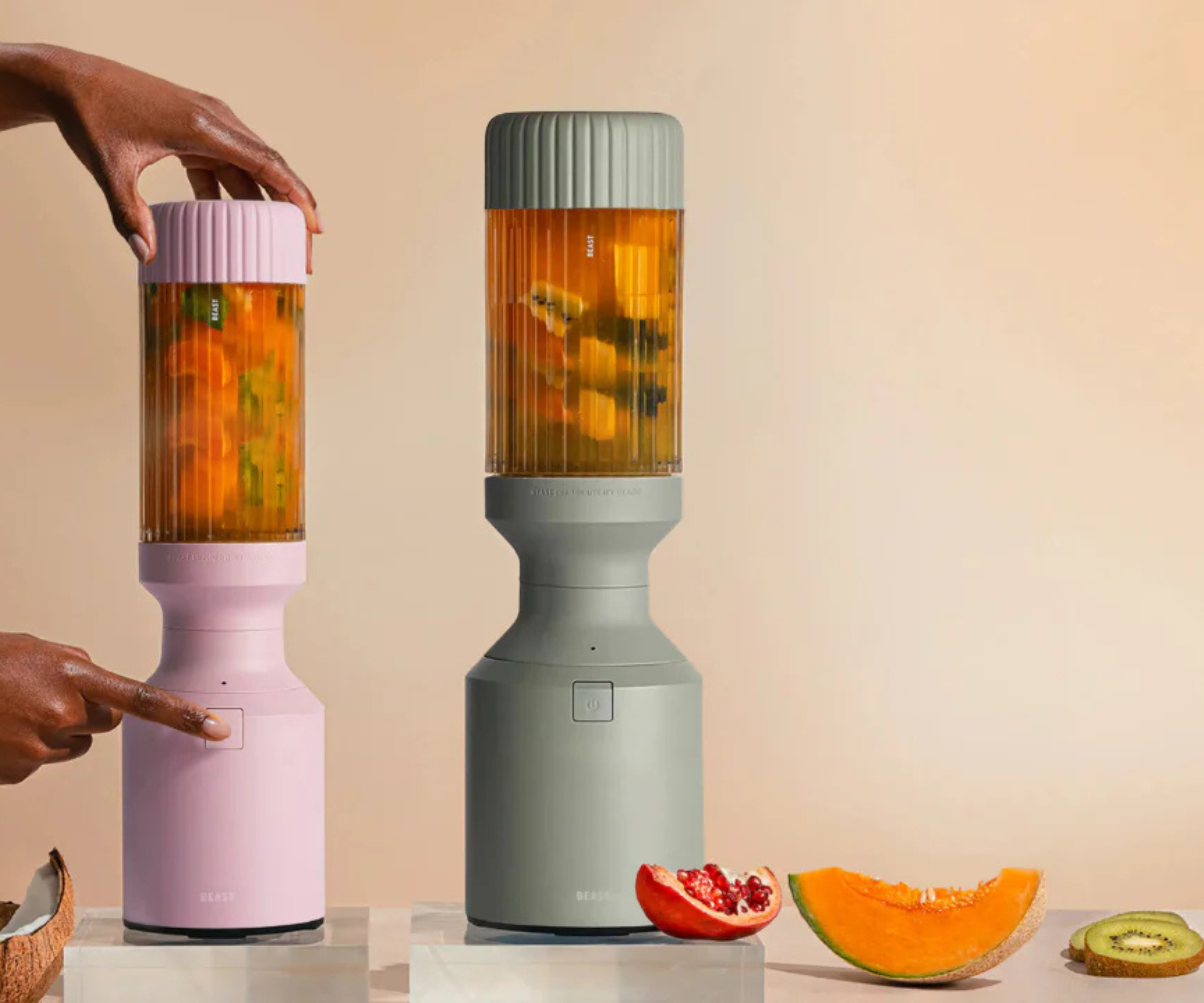
These brands aren't the leaders in our tests, but I still wanted to let you know about them in case a model has taken your fancy.
Smeg is known for its retro 1950s-inspired design; I've written extensively about their best refrigerators, adorable Smeg citrus juicers, and classic stand mixers. Smeg blenders bring the same style to the countertop. We really rate their Smeg Professional Blender, but have found that the rest are more about aesthetics than premium power.
BlendJet are the maker of portable, USB-rechargeable blenders. We love them for single-serve smoothies on the go. They are lightweight and convenient, but a little limited in power and capacity compared to rivals.
Beast is an up-and-coming range of compact bullet-style blenders, created by the same names behind Nutribullet. The brand is all about aesthetics, but they don't skimp on power and efficiency.
BlendTec is known for its industrial-strength motors and variety of presets; they are a big competitor to Vitamix. However, Vitamix wins on design and ease of use. Our bottom line is: if you can afford to spend more on a Vitamix with a good level of automated programs, you’ll be securing the best of both worlds from these two brands.

The space-age style of Smeg's blender makes this one of the sleekest, most premium models on the market. It's meticulously thorough, and the vacuum pump is useful for keeping blends fresher for longer. If you care deeply about aesthetics and want to be able to batch-blend, the Smeg is a smart pick.
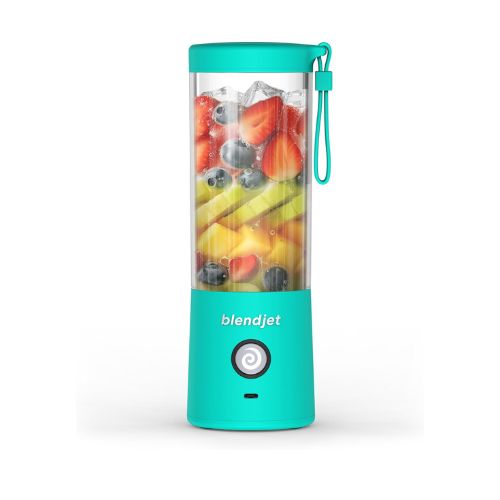
This blender is a great choice for gym bunnies and students, especially since it doesn't break the bank. Randomly, we often see big discounts on the Turquoise BlendJet 2 on Amazon Prime.

If you are in the market for a modern blender that makes light work of dips, dressings, and delicious smoothies, then you'll love the Beast Mighty 850. It's so easy to use and pretty to look at. However, the ribbed cups can be tricky to clean, and I found the noise quite jarring.
How to choose the right blender
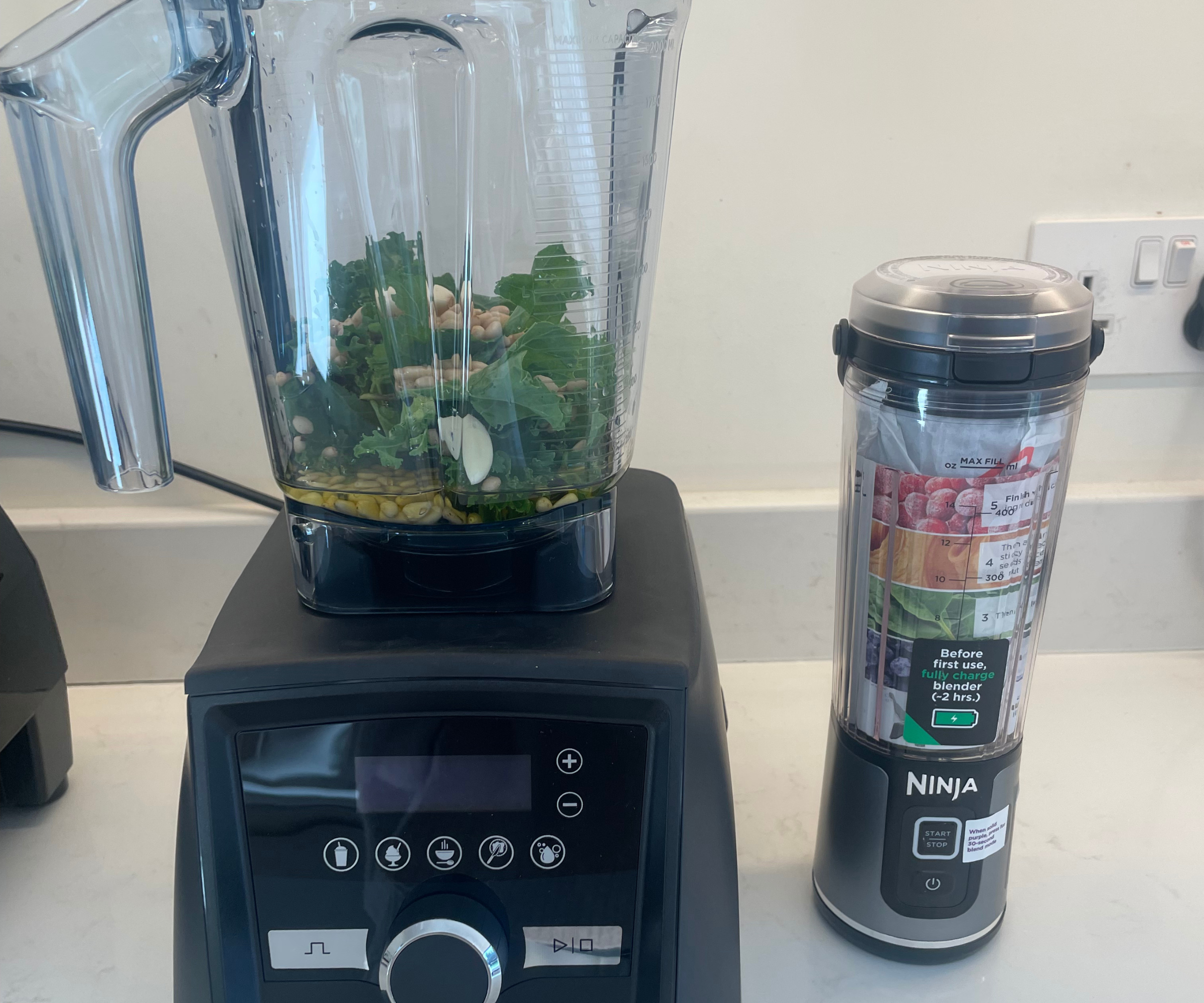
The type of blender you buy really depends your budget, space constraints, and what you want to use it for. Hopefully, my guide has pointed you in the right direction, but if you want to search for yourself, here are some questions to ask yourself.
What do you want to make? There are countless things to make in a blender, and different machines are suited to different recipes. All blenders are capable of making smoothies, particularly blending softer fruits. But if you want to make frozen desserts or nut butters, then you need a machine with a more powerful motor.
For frozen cocktails or homemade nut butters, you'll need that countertop powerhouse. For one-pot soups or pasta sauces, try an immersion blender. For single-serve smoothies, go for a personal or portable option – you can also experiment with soft dips and salad dressings on those.
Think about power: Sometimes, looking at the power stats can help you make a decision. Blenders that can make a routine morning smoothie will need at least 500-600 watts. If you have 700 watts, you'll be able to chop tougher nuts and seeds. Once you hit numbers, such as 1,200 watts, you'll be able to make almost anything, especially ice cones.
How many people are you serving? If you have a big family or you often cook for dinner parties, look for a blender that can hold between 60-80 oz (but bear in mind that this will take up more space on your countertop). If you're just serving up smoothies for one, a bullet blender (like the personal blenders above) will suit you just fine.
Set a budget: In my opinion, how much you pay really comes down to how you plan to use the blender. If you’re only an occasional user and you just want simple smoothies, then a budget model ($100 to $150) makes sense.
If you will use the blender every day, you need to move up the scale. Spend over $200 and you’re likely to get more accessories and programs. If you want the best results and long-term use out of your blender, then you’re looking at investing $400 or more. At this price, you’ll get the fastest motors, more control, and, often, a wider range of automatic programs to make your life easier.
Do you care about design? There are some stunningly sleek blenders on the market that you'll want to keep front and center on your kitchen island (Smeg or KitchenAid, for example). There are others that you'll want to hide away immediately after using them. Choose carefully.
Do you have space to spare? Consider your counter and cupboard space before you buy. If you won't be able to keep a large, heavy Vitamix on the counter or fit it into your pantry cupboards, an immersion blender could be a great compromise, since they tuck neatly in drawers.
Does noise matter? Consider when and where you're going to use your blender. I have an open plan kitchen, so an ultra-loud blender can be really disruptive when people are relaxing or trying to watch TV. There are lots of quiet blenders on the market if that's a consideration; these work well for blending early in the morning, too.
Think about your lifestyle: Again, think about how you imagine a blender fitting into your daily life. Do you plan to make simple green smoothies in the morning? Or are you creating a beautifully creamy pumpkin velouté for a table of guests? The former will be very happy with a personal blender. The latter will want a fancy countertop blender for their chef-level creations.
Some of the most powerful blenders, for example, can use friction to heat raw ingredients, delivering hot soup in just a few minutes. Some double up as juicers, food processors, jelly makers, ice cream makers, and more. Beyond actual settings, some of the latest releases (like the Smeg Professional Blender) have vacuum pumps that seal and preserve your smoothies, helping them to last for longer. If that sounds indispensable for your lifestyle, go for it.
Do blenders make good gifts?
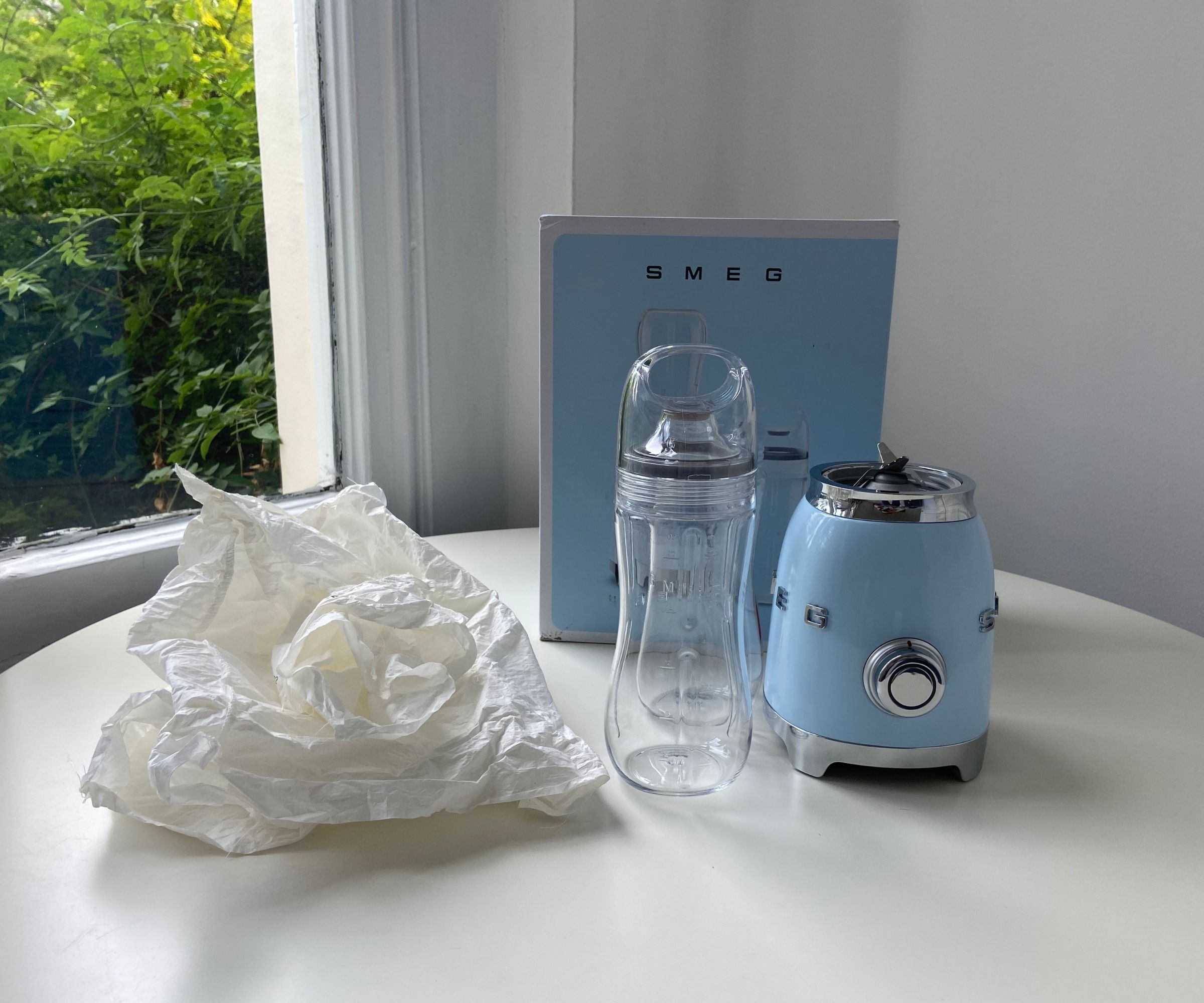
For health-conscious friends or family, a blender can be a thoughtful gift that helps them whip up nutrient-packed smoothies and sneak more fruits and vegetables into their daily routine. I think a portable blender is perfect for a busy student or professional who wants to eat well on the go.
For passionate home cooks, a powerful countertop model or multifunctional blender may be the better choice – especially if they want to make soups, nut butters, or larger batches.
That said, blenders aren’t always the most practical gift. If the recipient already owns one – or isn’t someone who cooks often – your gift might not see much use.
Plus, quality models can be a little pricey, while cheaper versions may struggle with performance and durability (I've listed the best value options in each section of this guide, so you can avoid buying a disappointing gift!)
How to score discounts and seasonal savings on the best blenders
The best times to buy a blender are Black Friday (the last weekend of November) and the January clearance sales. In my experience as a kitchen appliances editor, winter always brings the best discounts on warm-weather essentials – including top-rated blenders, smoothie bowl makers, and ice gadgets.
It's a great opportunity to score lower prices on holiday gifts or to get a head start on your New Year's health goals.
Prices on the best blenders often start dropping early, especially the week leading up to big sale days, so I keep the top of this page updated with the best deals as they become available.
Sometimes, brands offer year-round discount codes on their websites (think: Labor Day deals or 4th of July treats). I'll also list those at the top of this page if the discounts are worth shouting about. If you want to peruse for yourself, I've linked the best below.
- Ninja Kitchen – frequent seasonal discounts, codes and competitions, plus 15% off when you sign up for their email newsletter.
- Nutribullet – prices tend to be matched on Amazon Prime, but the brand site offers a 'refer a friend' program with $20 off purchases of $90 or more for every person you refer.
- KitchenAid – limited-time deals on immersion blenders and the countertop beauties for national sales, plus 10% off countertop appliances when you sign up for their mailing list.
How we test blenders
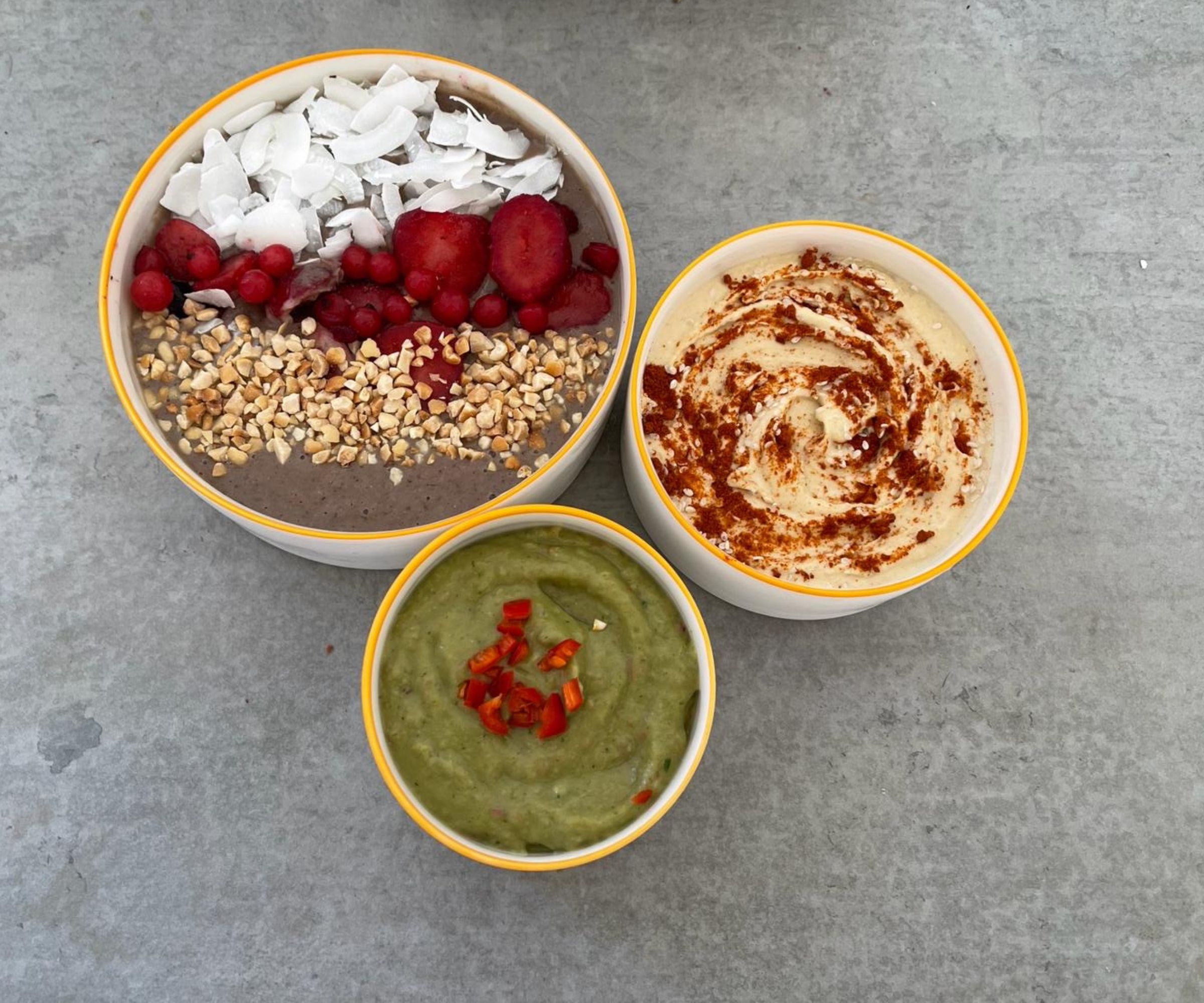
Every blender in our best blender guide has been tested hands-on and reviewed by at least two members of the Homes & Gardens team. We have a series of standard tests that all of our blenders go through.
We start with practical tests (protein shakes, berry and kale smoothies, soups, dips, and frozen drinks), then we move on to assessing the cleaning process, then we weigh up the design, durability, overall value for money, and of course, who the blender might suit.
You can read more about how we test blenders here and our review and testing guidelines provide more insight into our process.
Blender FAQs
What are the main blender types?
The main blender types you'll see when you're shopping for a new appliance can be divided into these four categories. Below, I've explained a little more detail behind each product type and who they might suit.
Countertop blenders: Classic countertop blenders have a large pitcher jug (usually around 1.5 - 2 liters) and they sit on a motorized base. They come with multiple speed settings and the best models have automatic programs to whip up large-batch smoothies, soups, sauces, and frozen cocktails at the touch of a button. They are great for families or keen cooks who want to serve multiple people. Move up the price and power scale, and you’ll get additional features. Some of the most powerful blenders, for example, can use friction to heat raw ingredients, delivering hot soup in just a few minutes. Some double up as juicers, food processors, jelly makers, ice cream makers, and more.
If you want to blend dry ingredients to make creamy dips, like hummus for example, or bring together pastry dough, you'll be better off looking at one of the best food processors or a blender-food processor combo.
Bullet blenders: These are compact, single-serve blenders with a tall blending cup that often doubles as a to-go cup. They don't tend to have fancy, preset programs –rather simple twist and pulse functions. They are very easy to use and designed primarily for smoothies, protein shakes, and other quick recipes, like pancake batter. However, the most powerful, premium models can handle a couple of ice cubes, dressings, and dips, too. They really suit individuals or couples – or anyone with a small kitchen / limited counter space.
Portable blenders: Self-explanatory, really. These are cordless blenders that you can charge up and take out and about. They aren't the most powerful, but we've tested some excellent models that can blitz dips and even crush ice – just check out our guide to the best portable blenders. If you're a fitness enthusiast, student on the go, busy professional, or a frequent traveler, a portable blender is a must-have.
Immersion/hand blender: You'll recognize these as stick-like blenders that you hold and plunge directly into pots, bowls, or containers. Chefs often use them for soups, sauces, and small batches of pureés. They’re also fantastic if you want to make homemade baby food, as well as people who prioritize quiet operation. They tend to tuck away nicely in drawers, too.
Which brands are best for beginners vs professionals?
If you're a professional, you'll want a Vitamix blender without any shadow of a doubt – and probably a Bamix immersion blender for soups and purees.
If you're a beginner, you'll love the simple, 'twist-and-go' power of the Nutribullet Ultra. The price is accessible, too.
Can I make hummus in a blender?
The vertical design of a blender pitcher is ideal for liquid mixtures, but it's not well-suited for thick or dry dips.
However, the Vitamix options on this list feature vortex systems that improve blending efficiency – we got some stunning hummus results in our tests. Still, unless you're willing to add a generous amount of olive oil or water to your hummus, a food processor is the better choice. Its flatter bowl is better suited for chopping dry ingredients like garbanzo beans and garlic. As a trained cook, I would always recommend using food processors for the best results.
If you're trying to choose between a blender or a food processor, there's always the option of buying a model that can do both. We have a whole buying guide dedicated to the best food processor blender combos.
When is the best time to buy a blender?
Kitchen experts and savvy shoppers know that winter is prime time for blender discounts. Black Friday and Cyber Monday offer the biggest, best discounts of the year, followed by the January sales.
If you'd like to scroll the sales for yourself, here are the most reliable retailers for picking up a significant saving.
- Best Buy: save on Nutribullet, Ninja, Vitamix and more
- Walmart: regular reductions on bullet blenders and immersion blenders
- QVC: deep discounts on best-selling brands
- Target: the place to pick up personal blenders for a good price
- Amazon: close-to-constant sales across a range of blenders
Last Black Friday, I saw 50% off our favorite ever A3500 Vitamix on Amazon Prime. When big discounts like this drop again, you'll be the first to know. I publish the best deals at the top of this guide during every national sales period, and I keep all the prices in the main body of this guide up to date, too.
Design expertise in your inbox – from inspiring decorating ideas and beautiful celebrity homes to practical gardening advice and shopping round-ups.
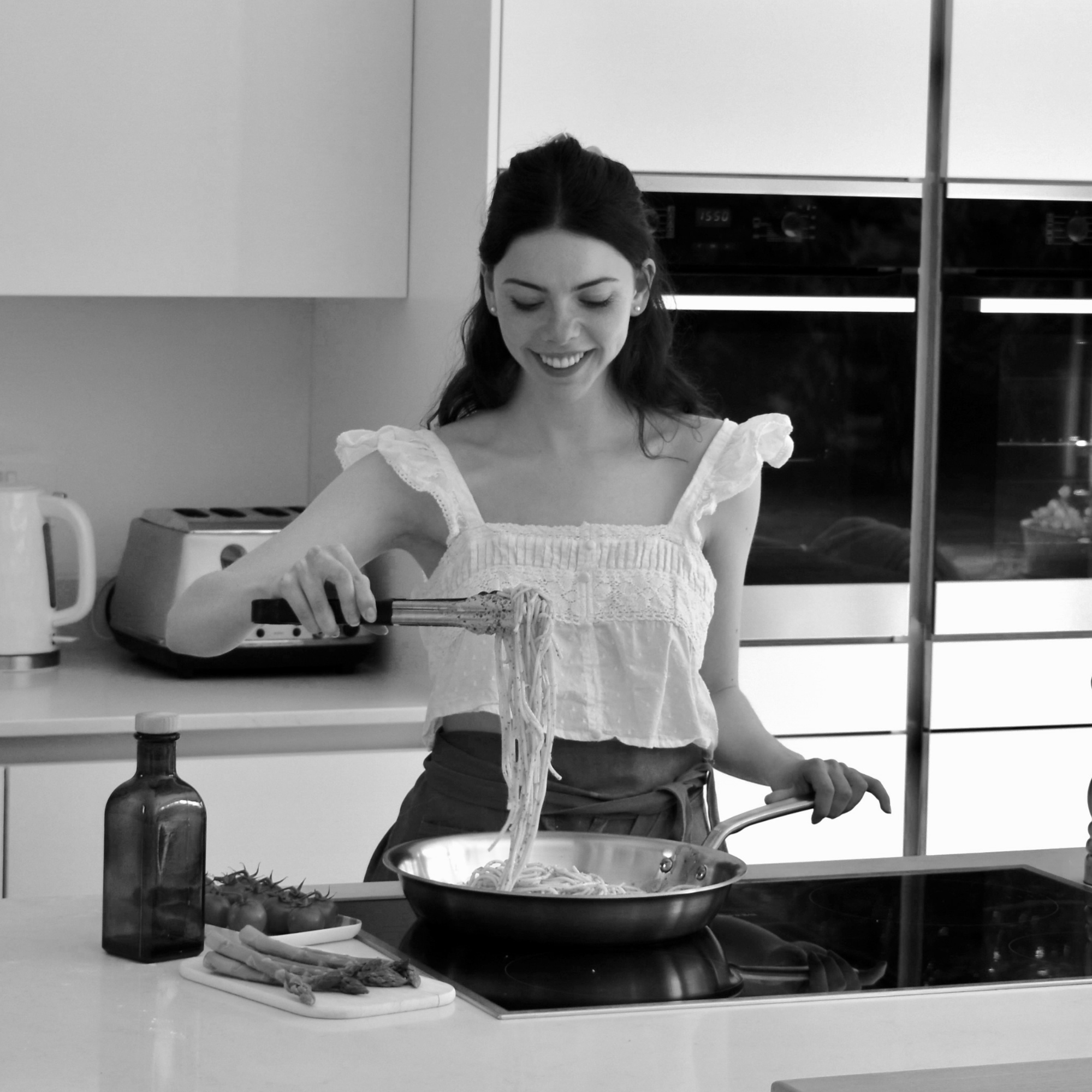
Lydia is the Kitchen Appliances Editor for Homes & Gardens, testing everything from air fryers and mixers to juicers and coffee machines. She trained in Culinary Arts at Leiths School of Food & Wine and previously served as the Recipe Editor for Mindful Chef.